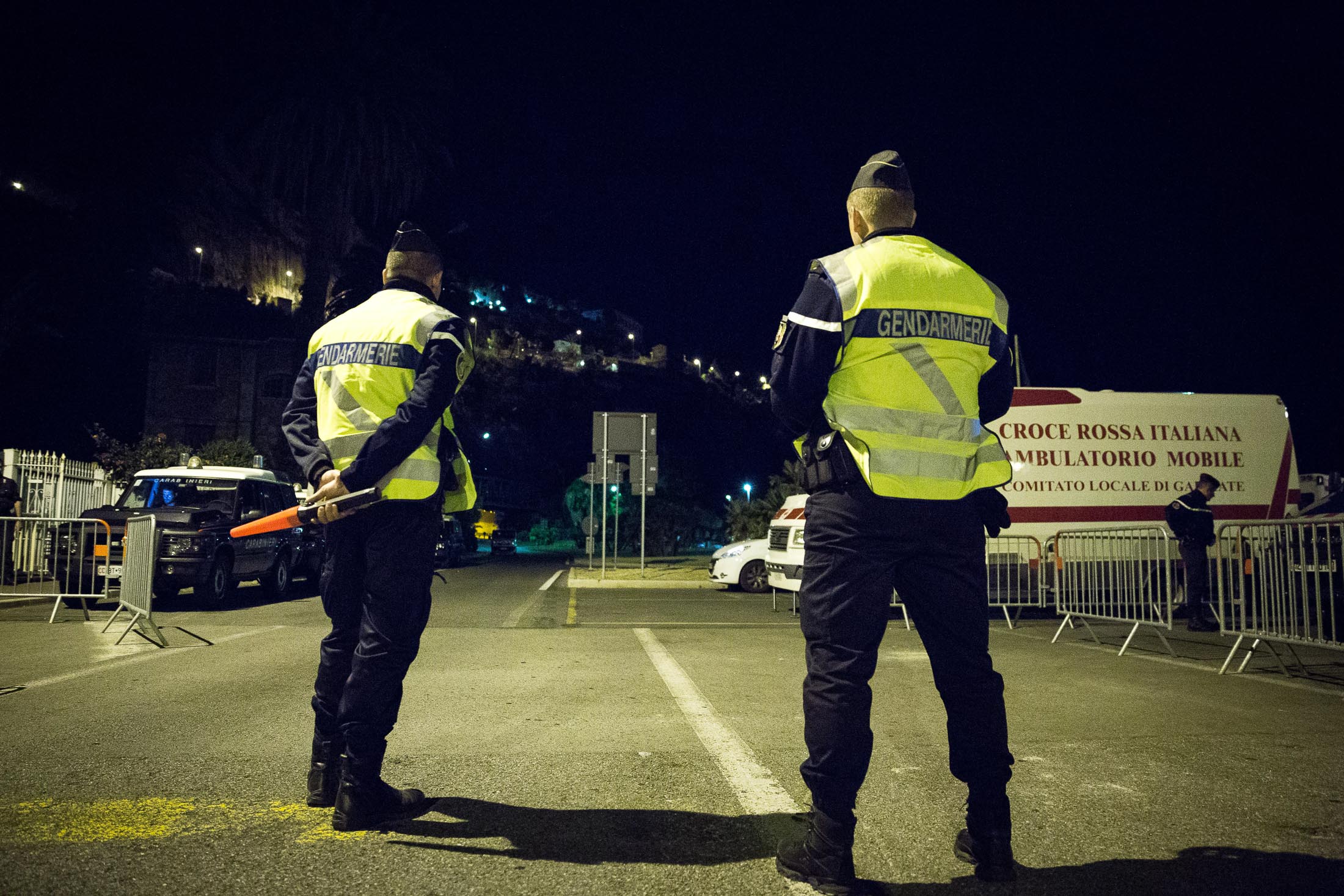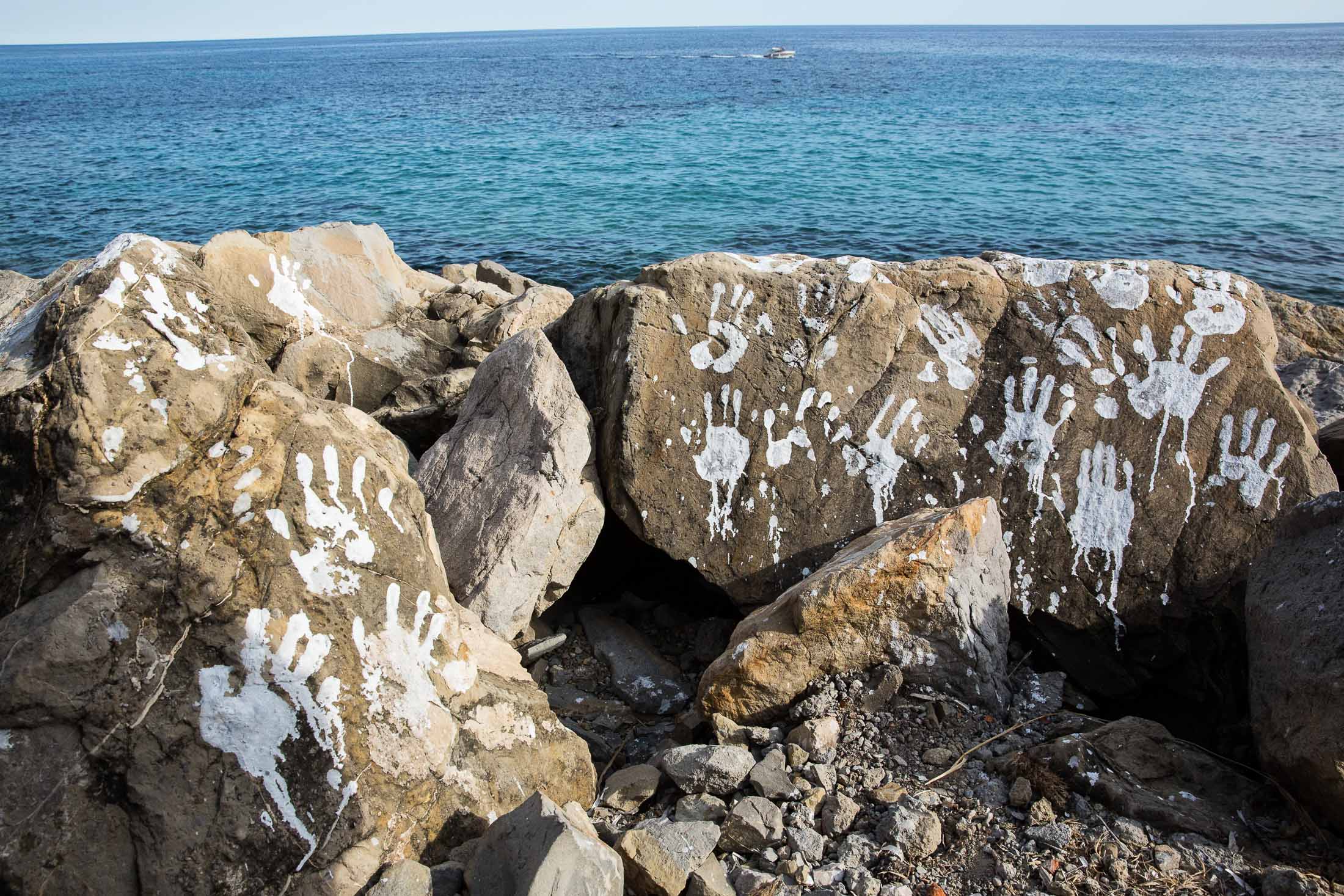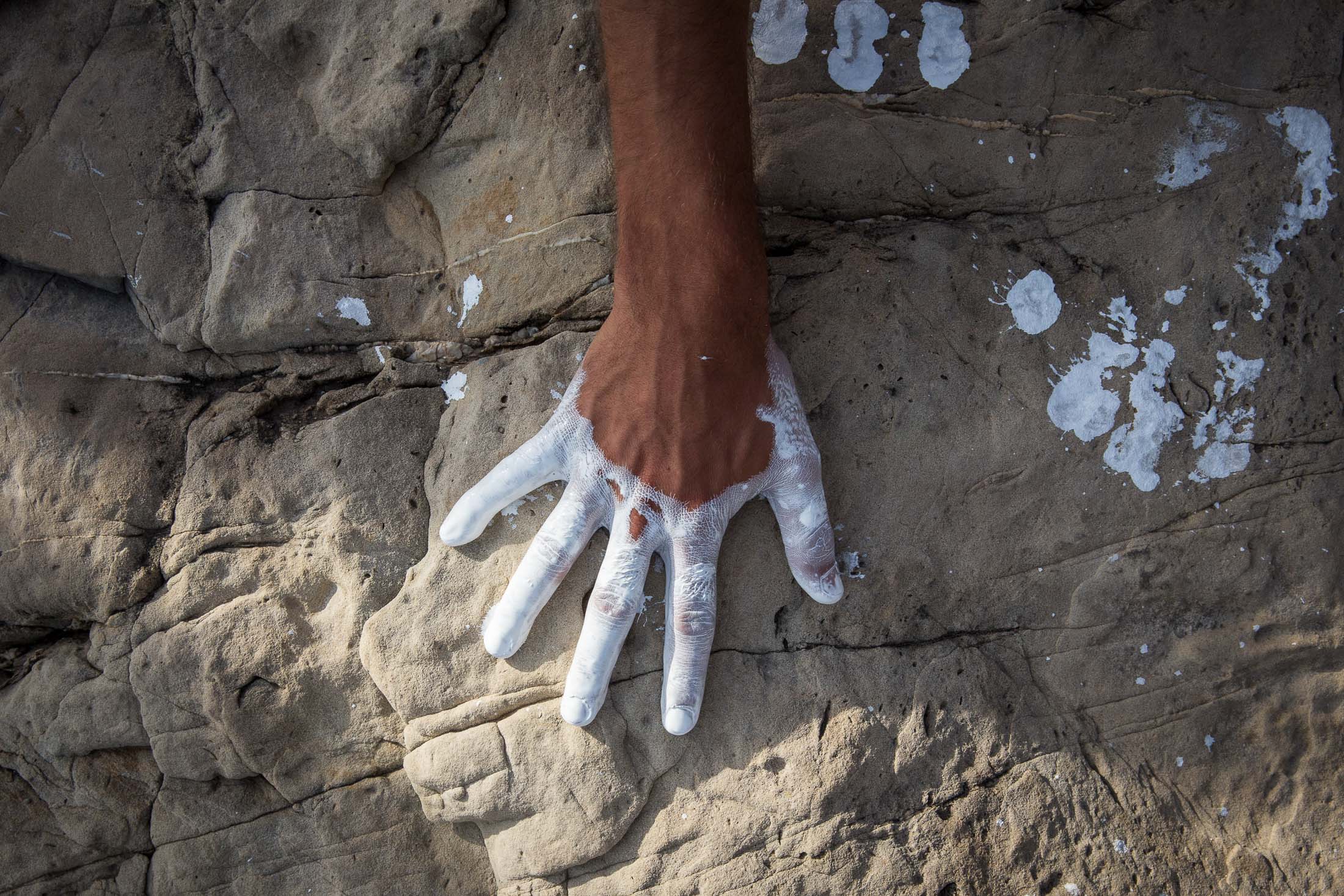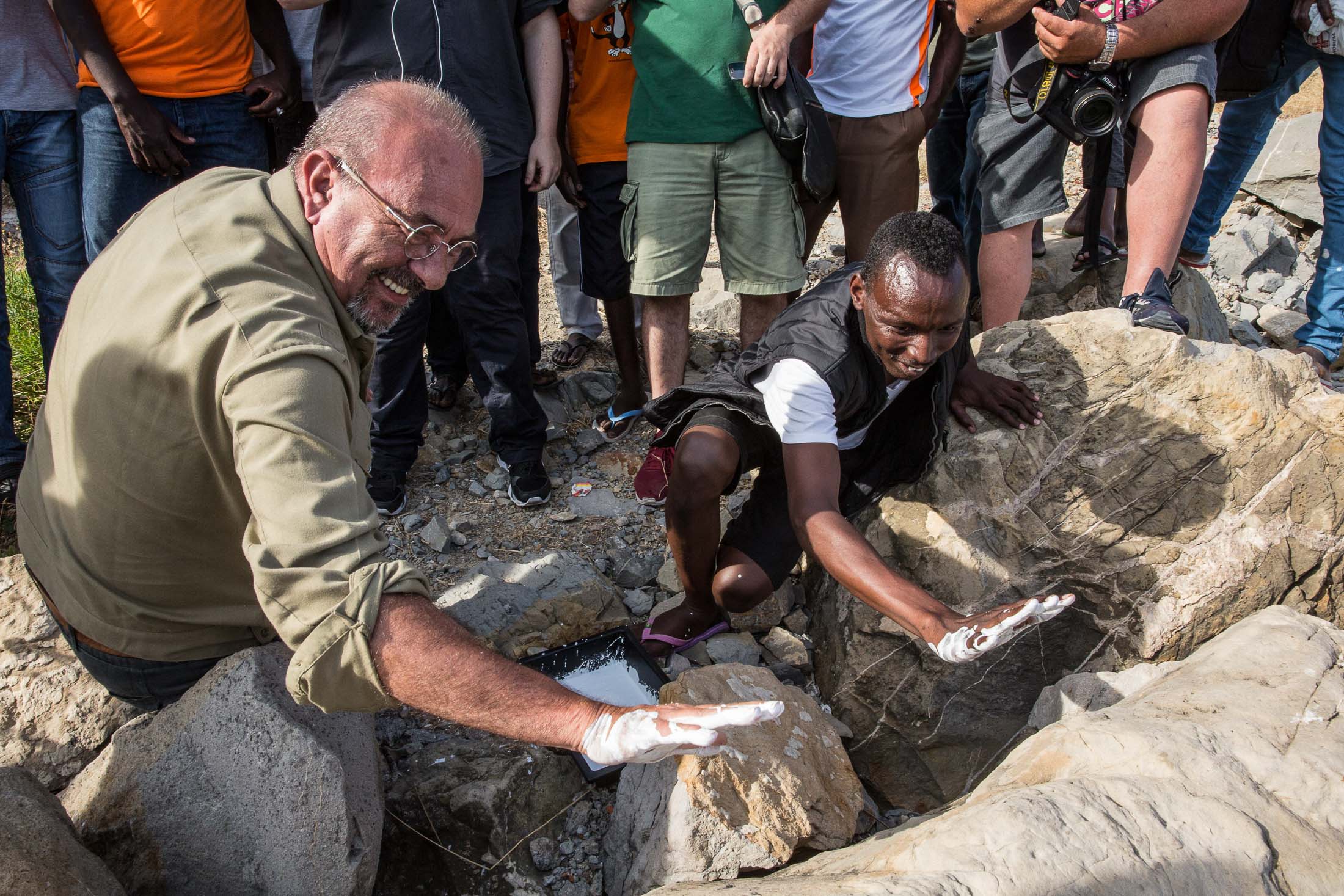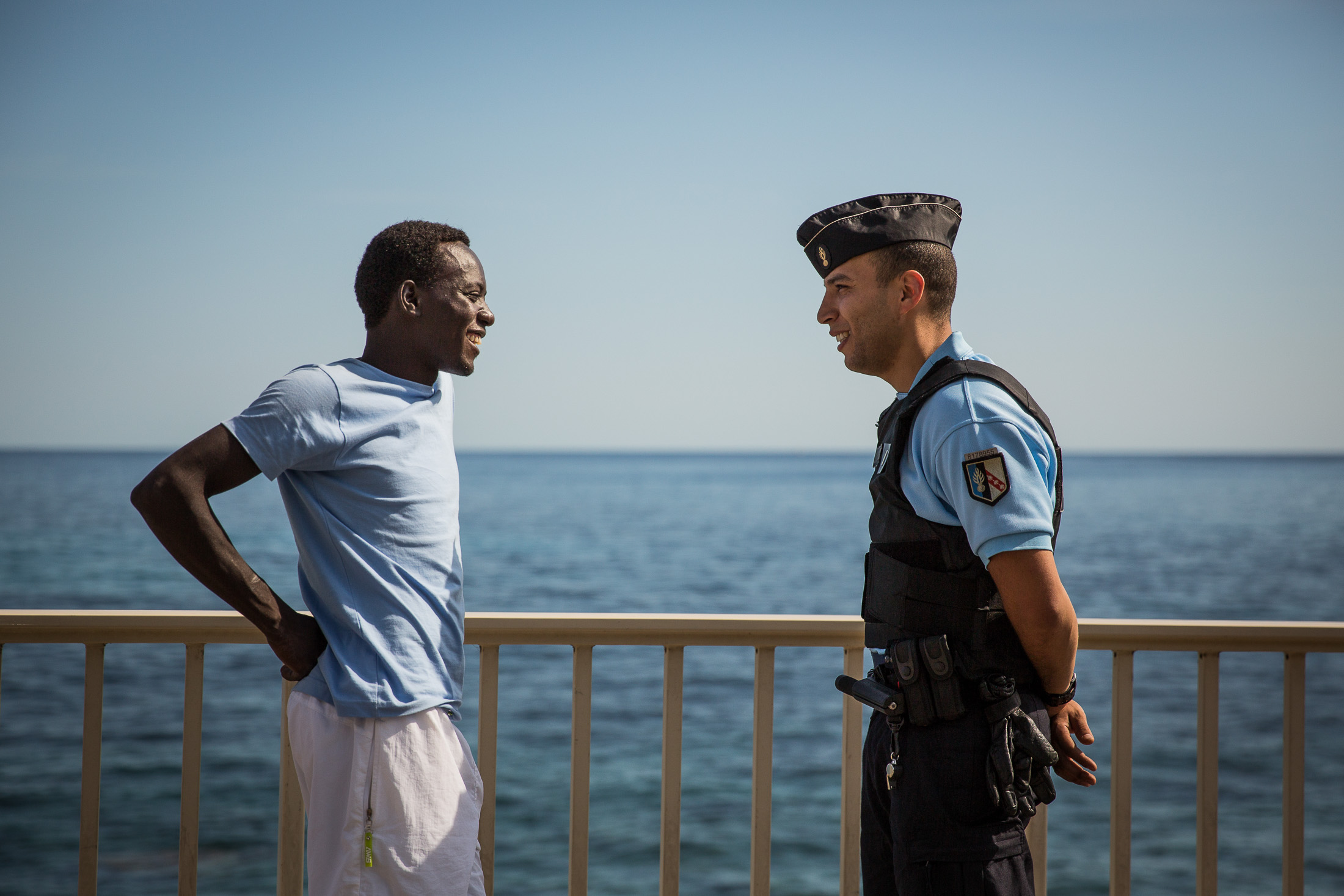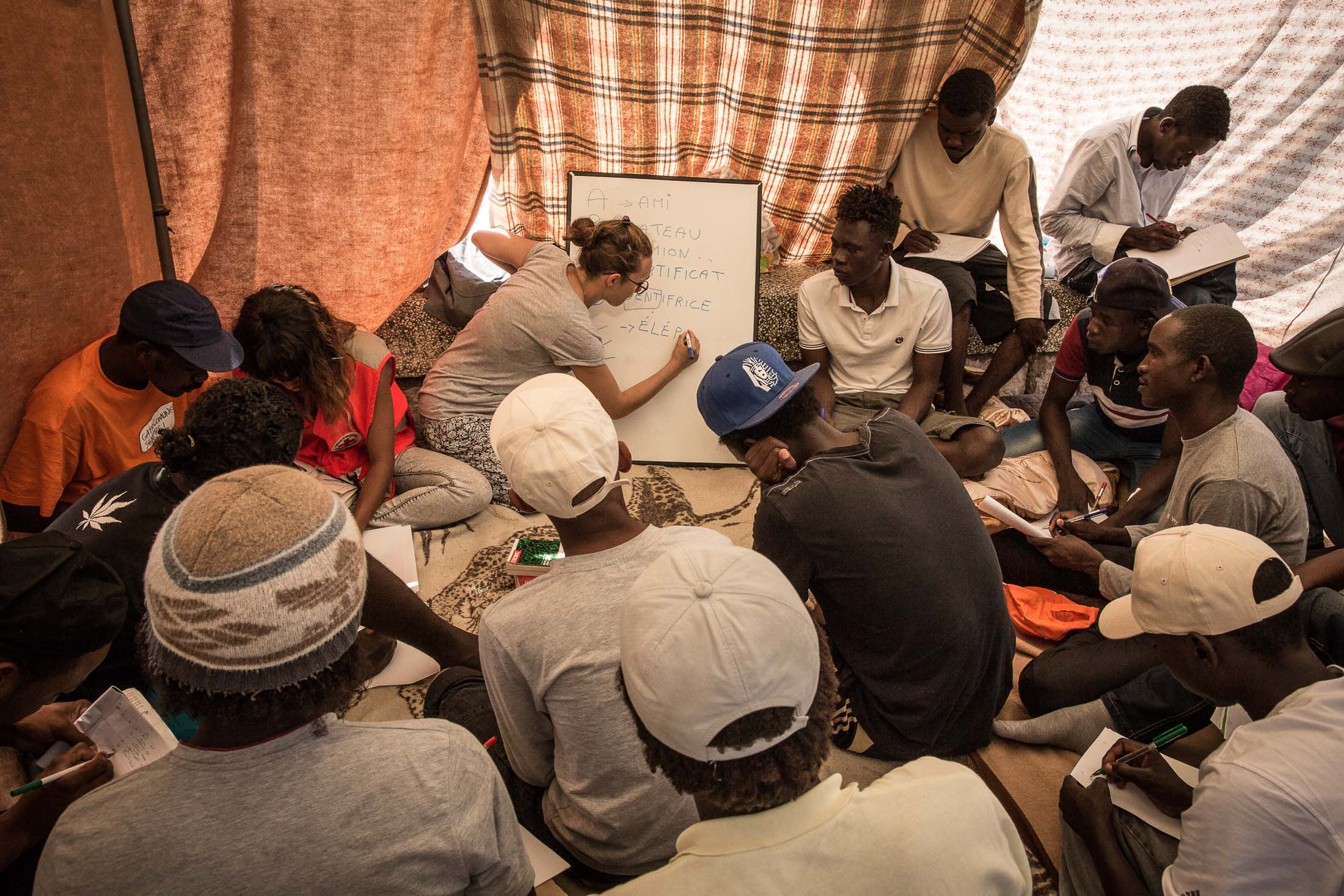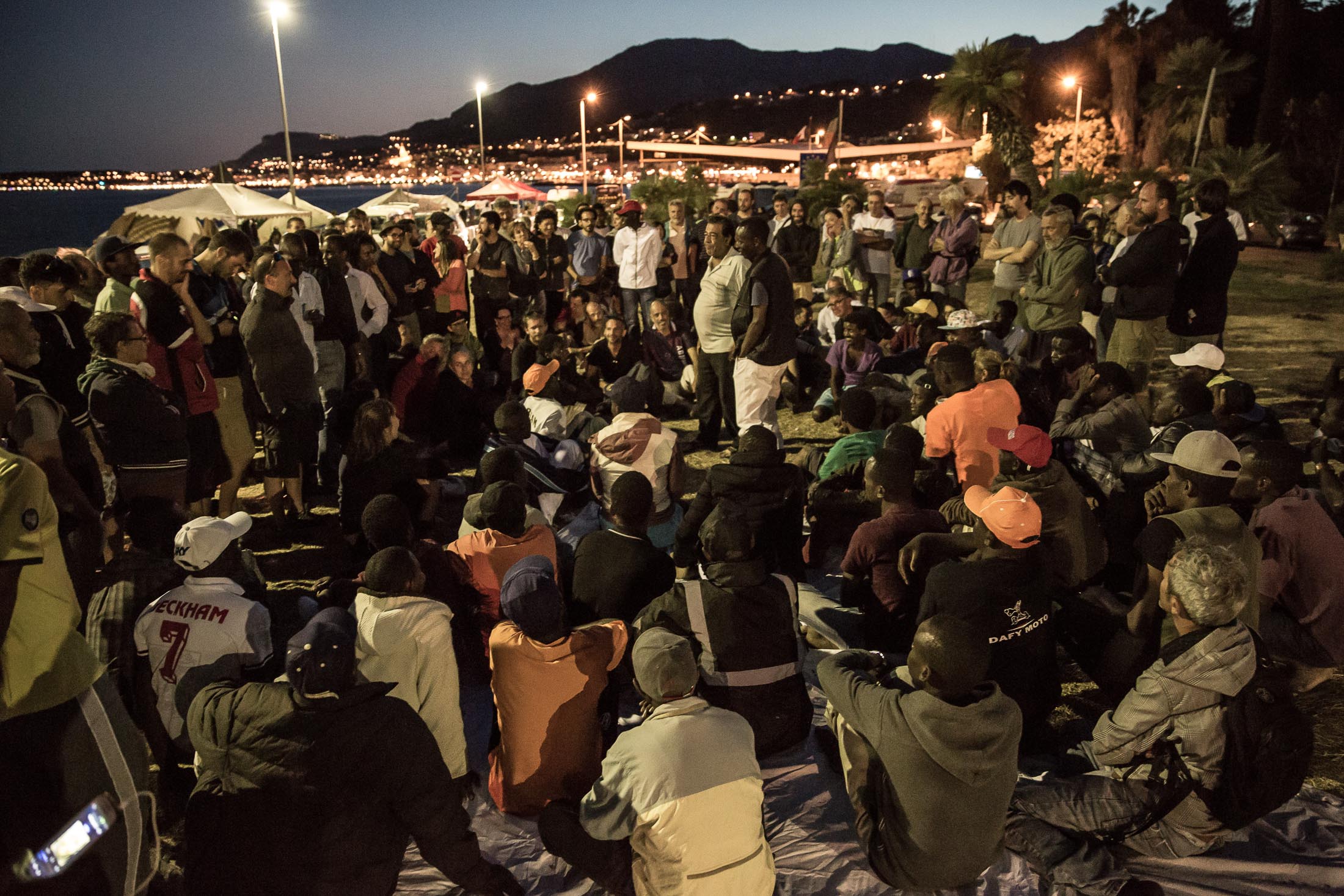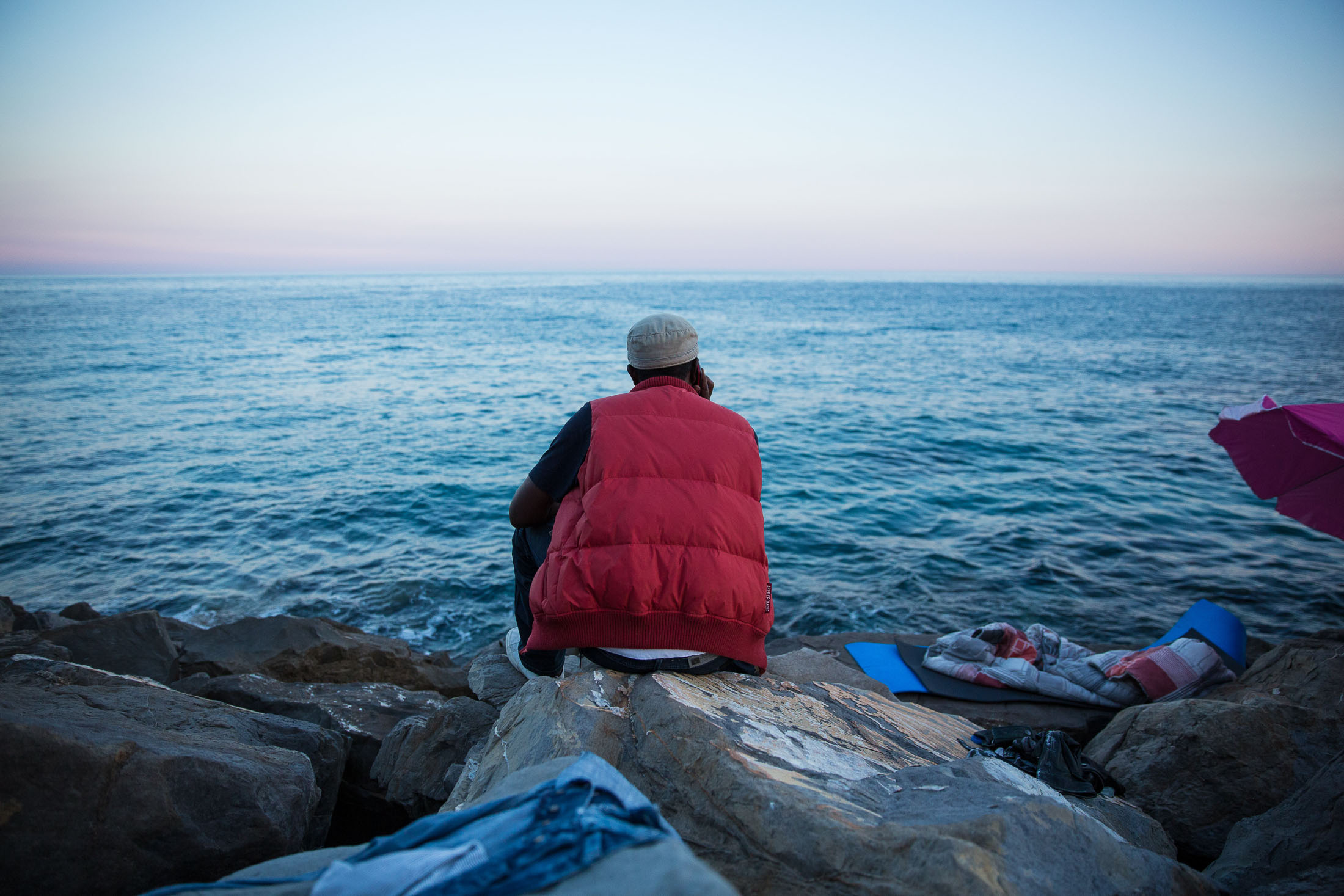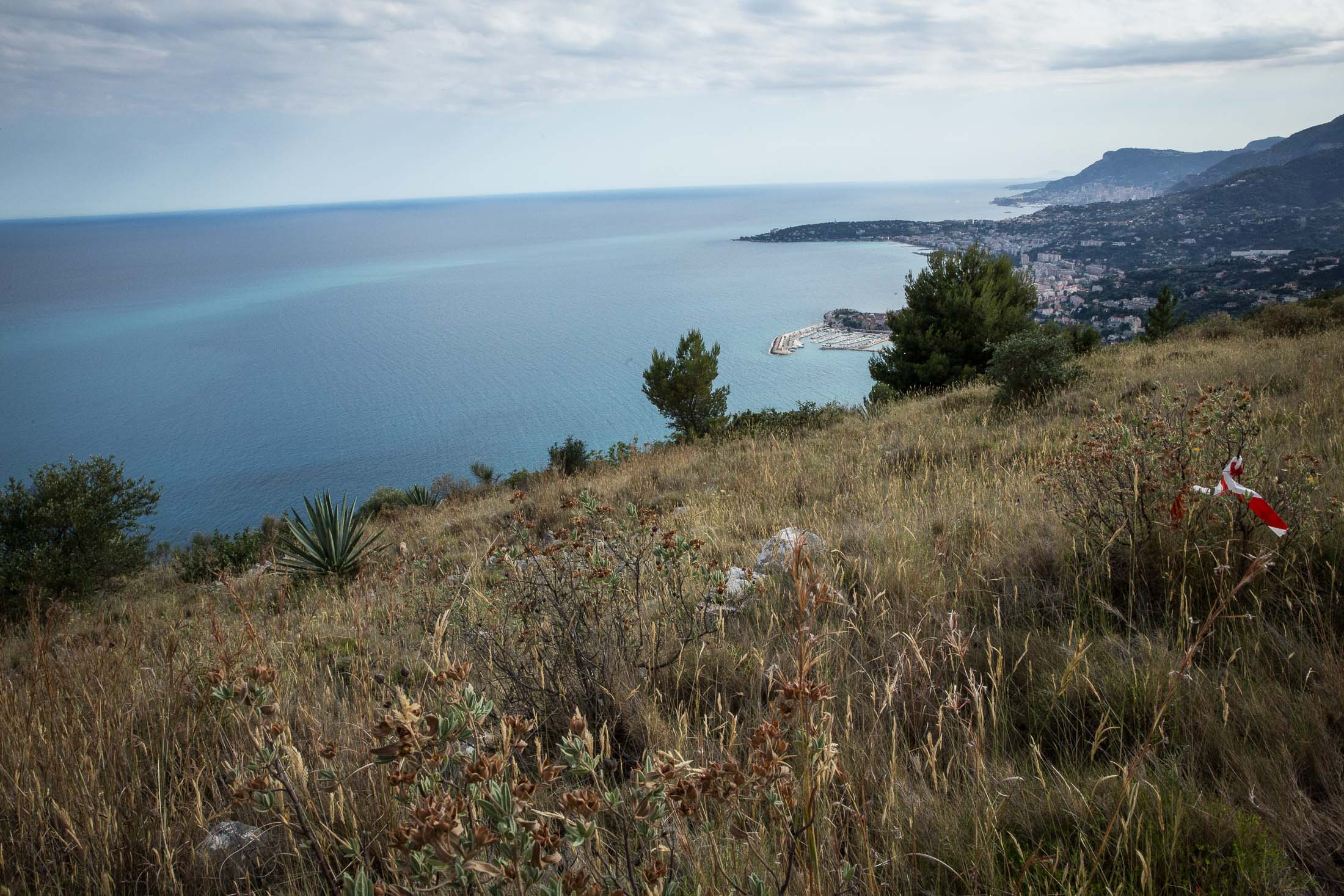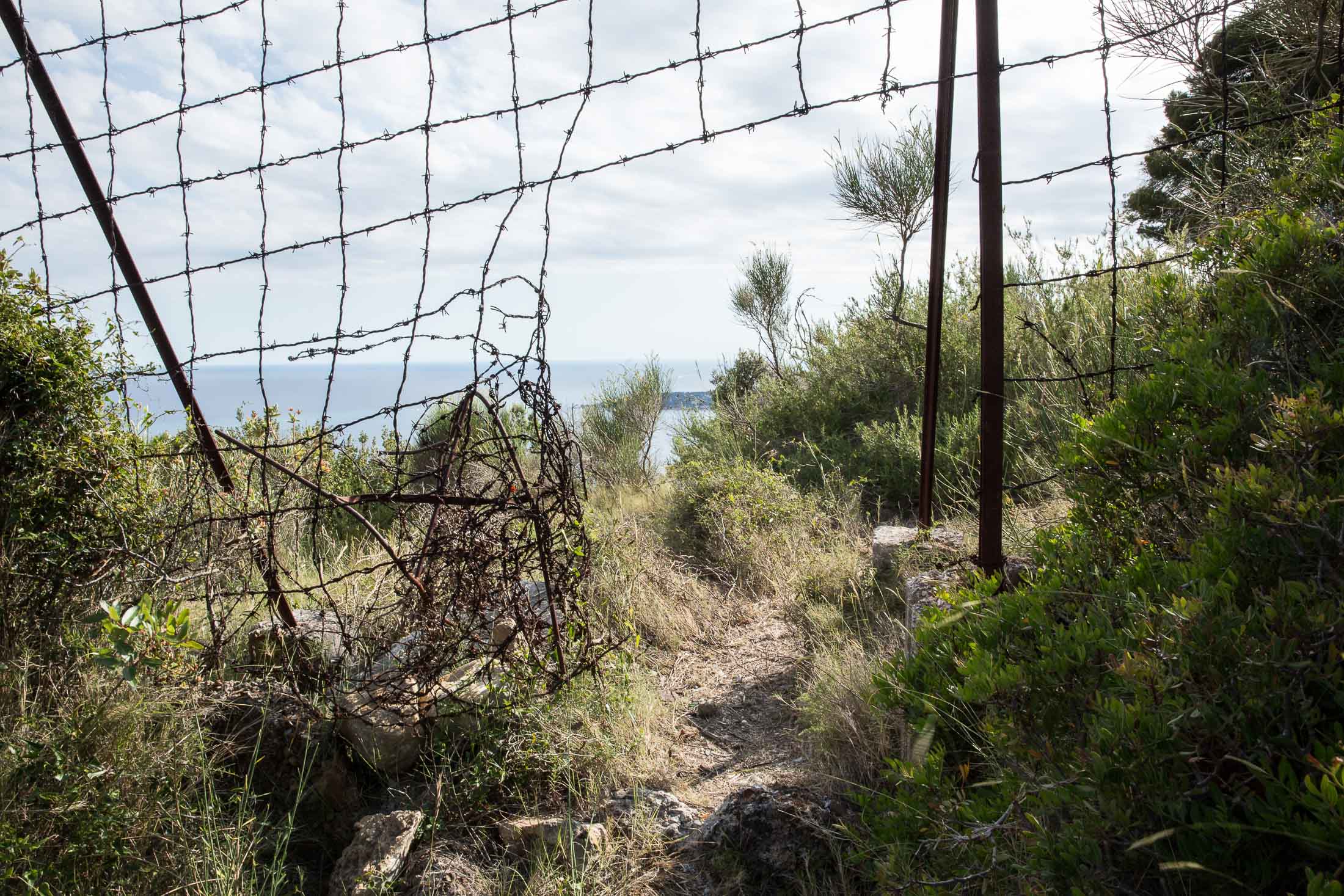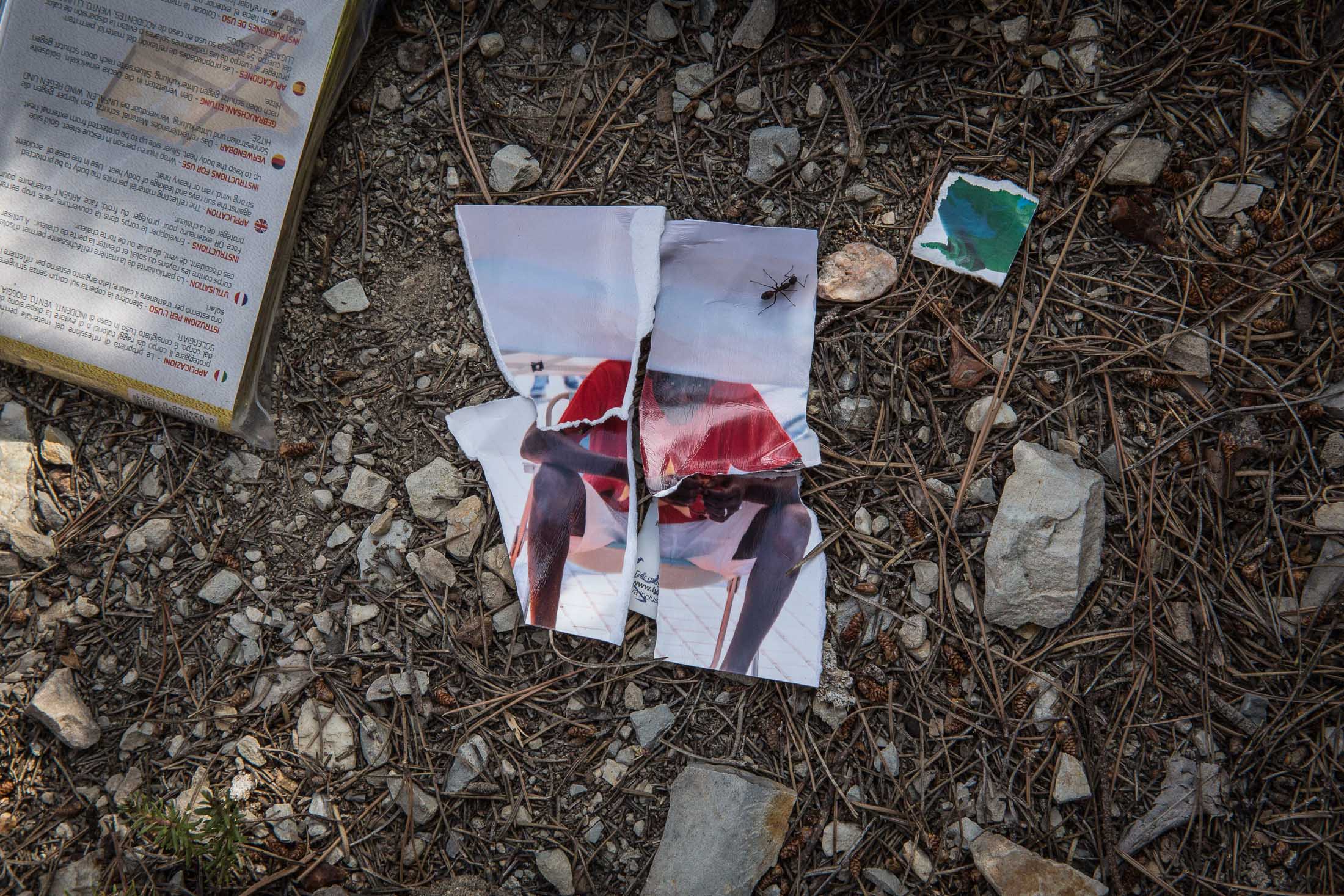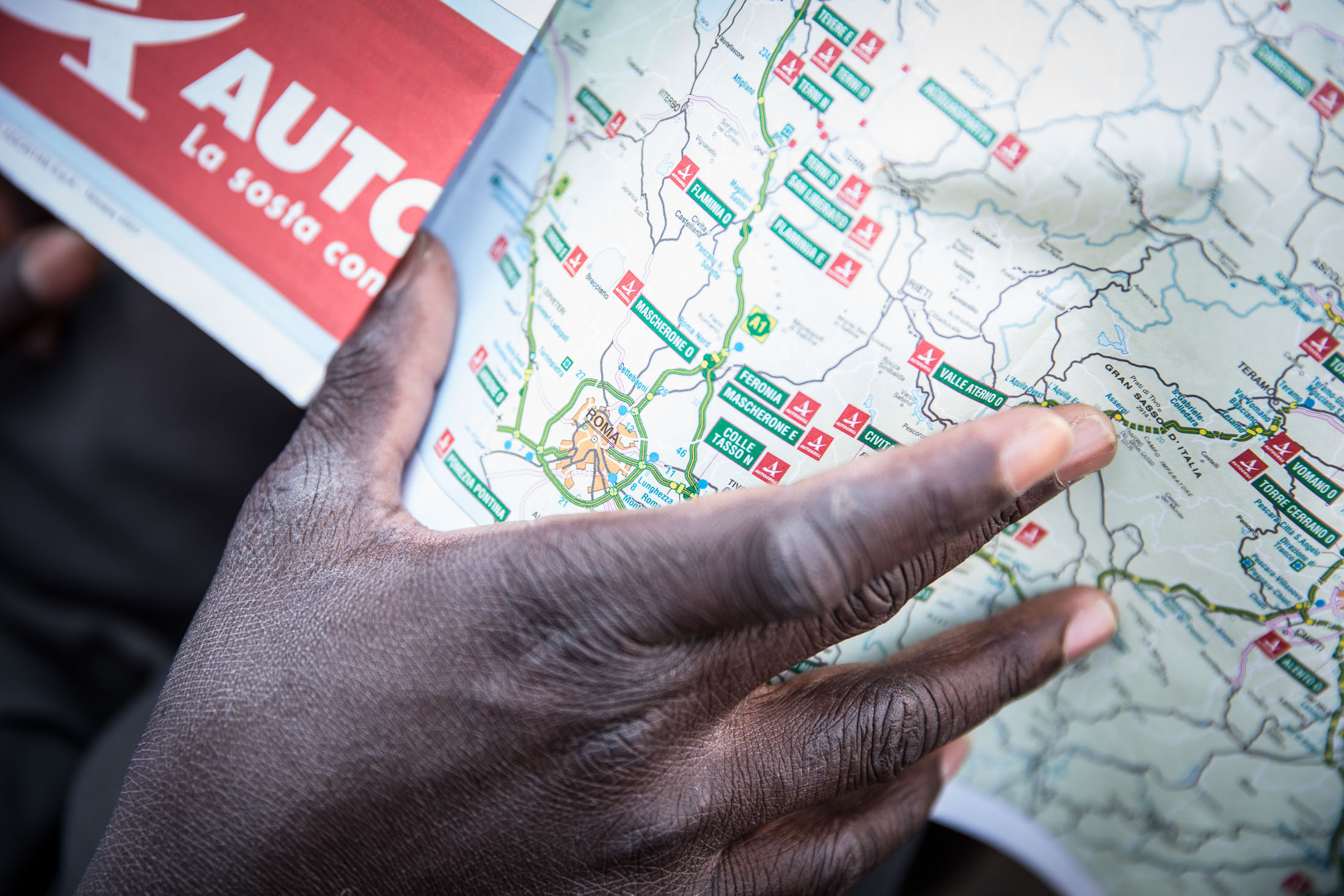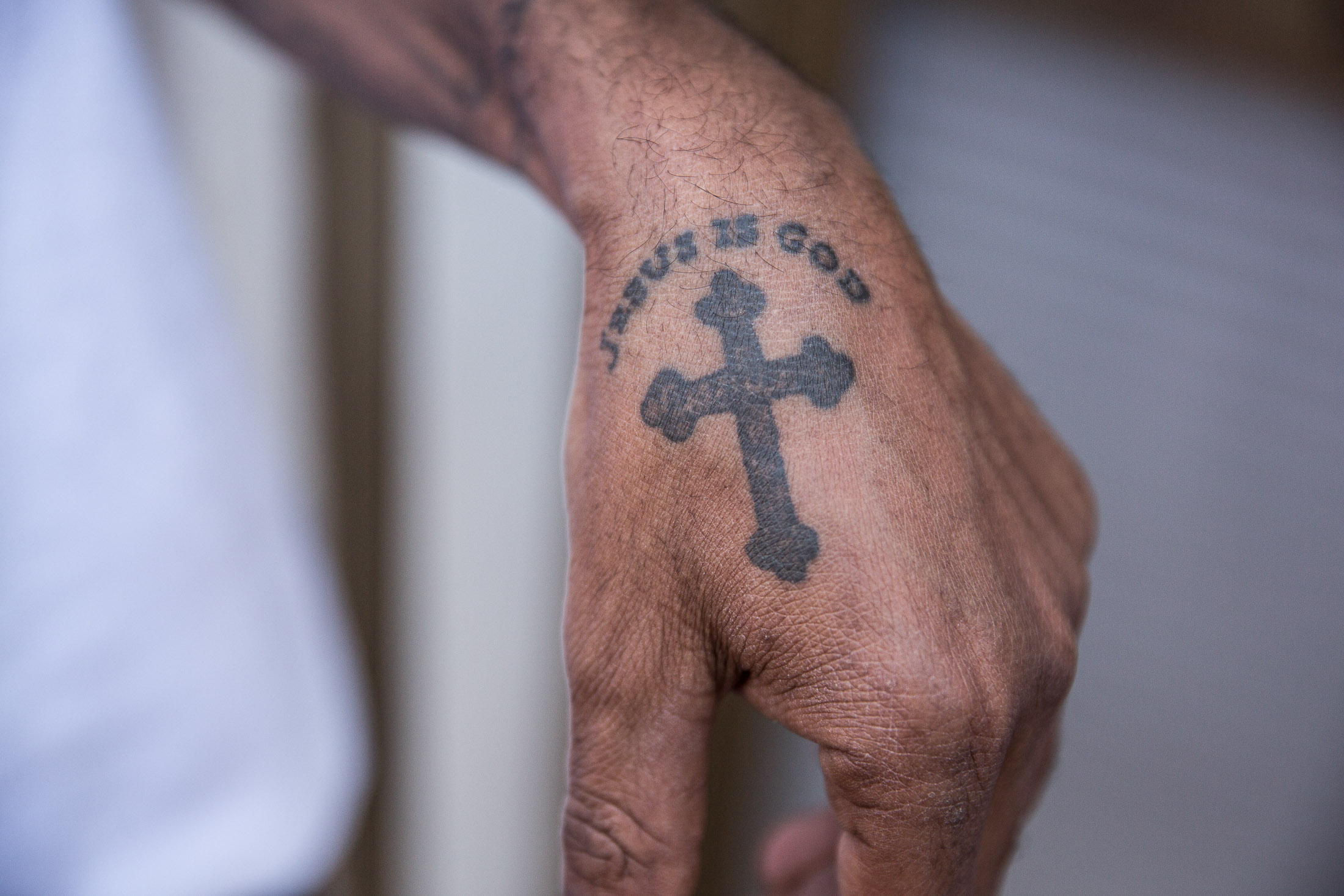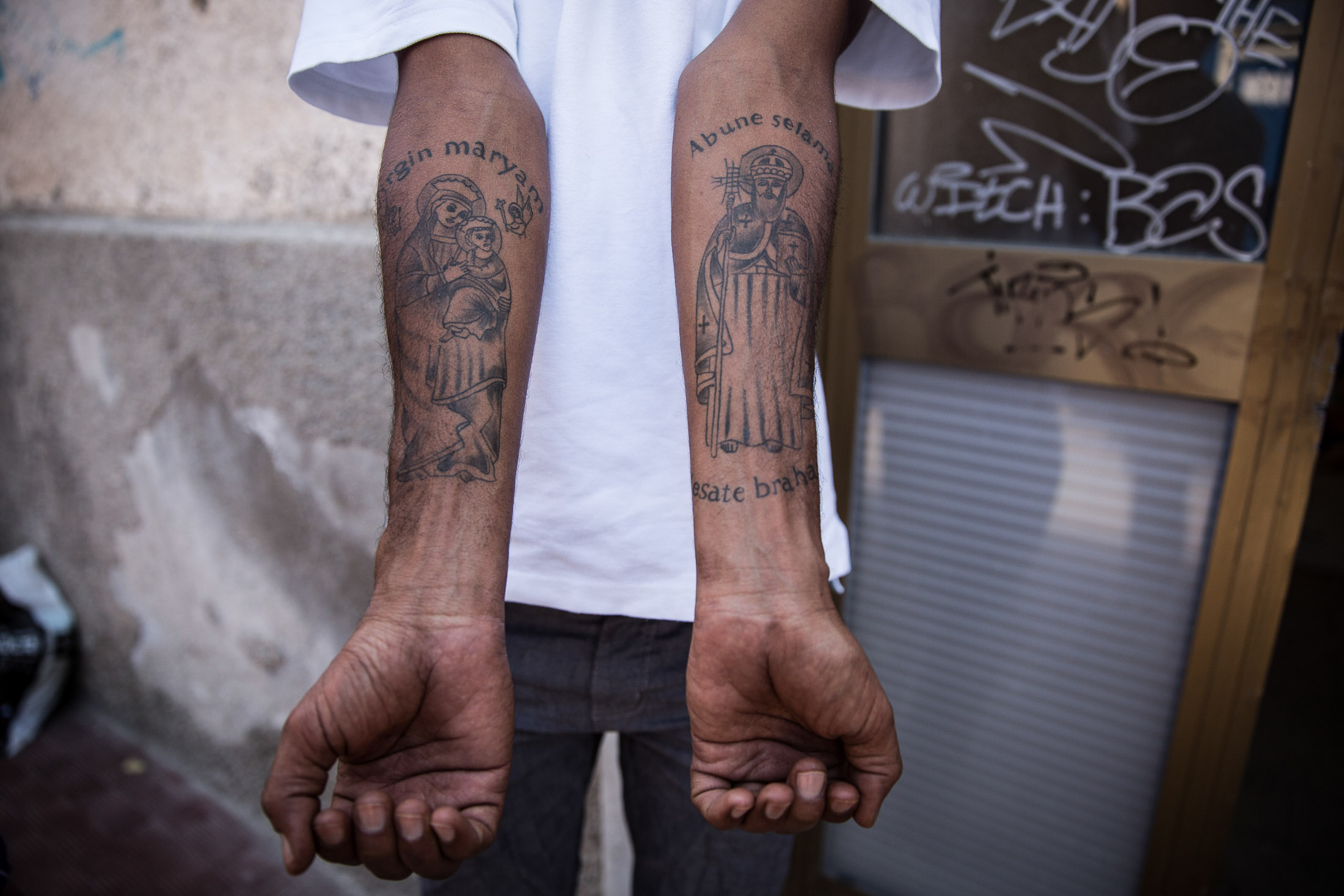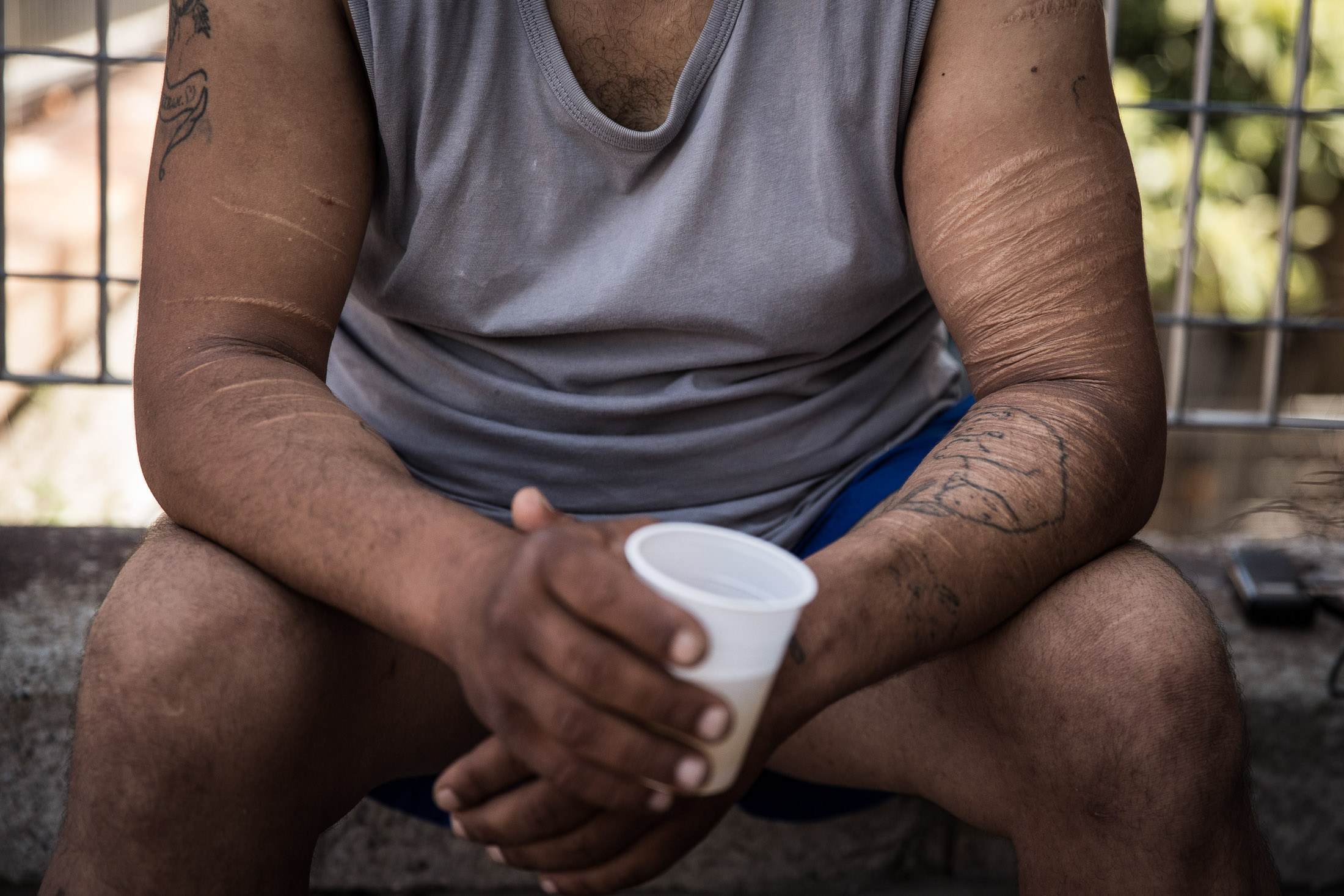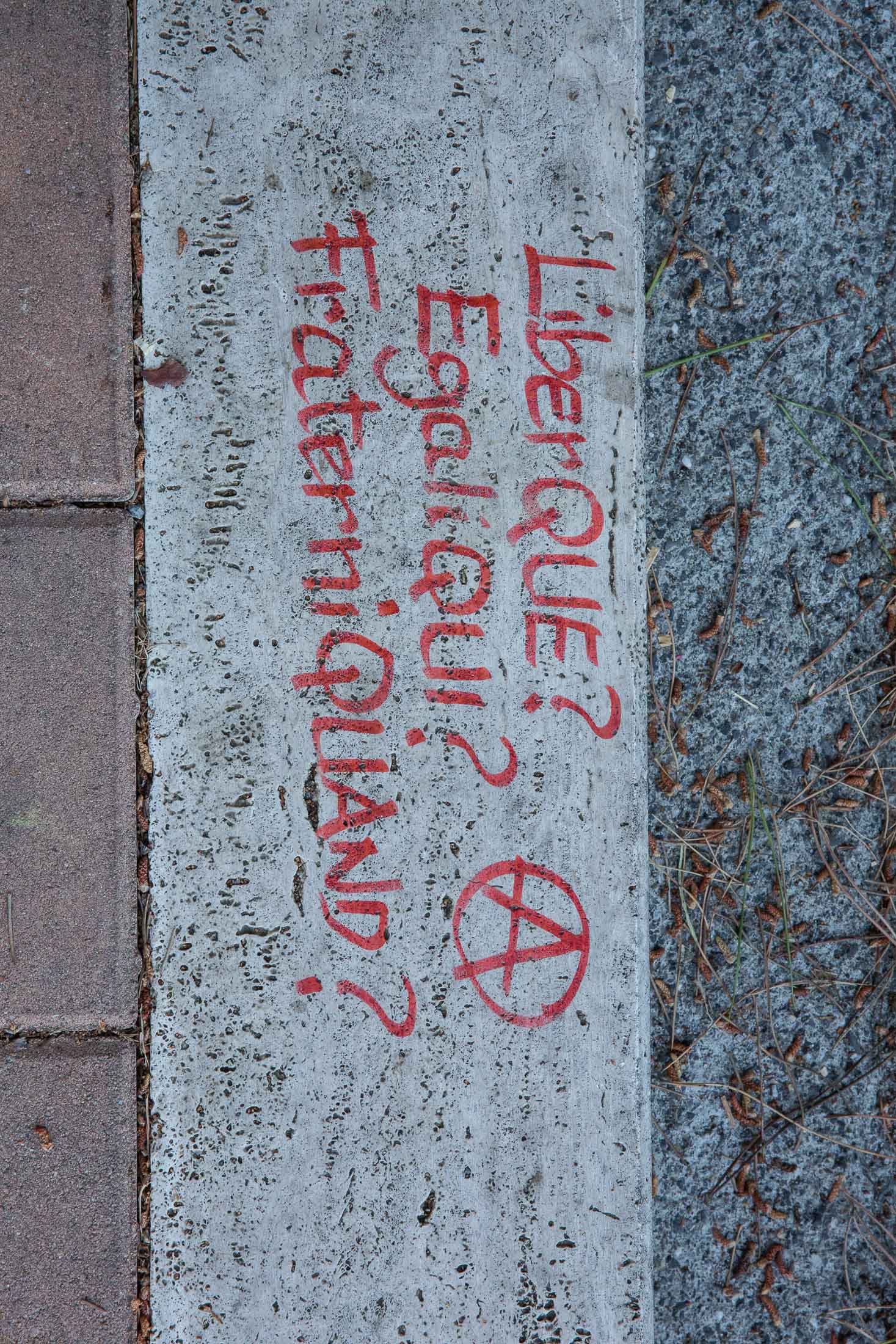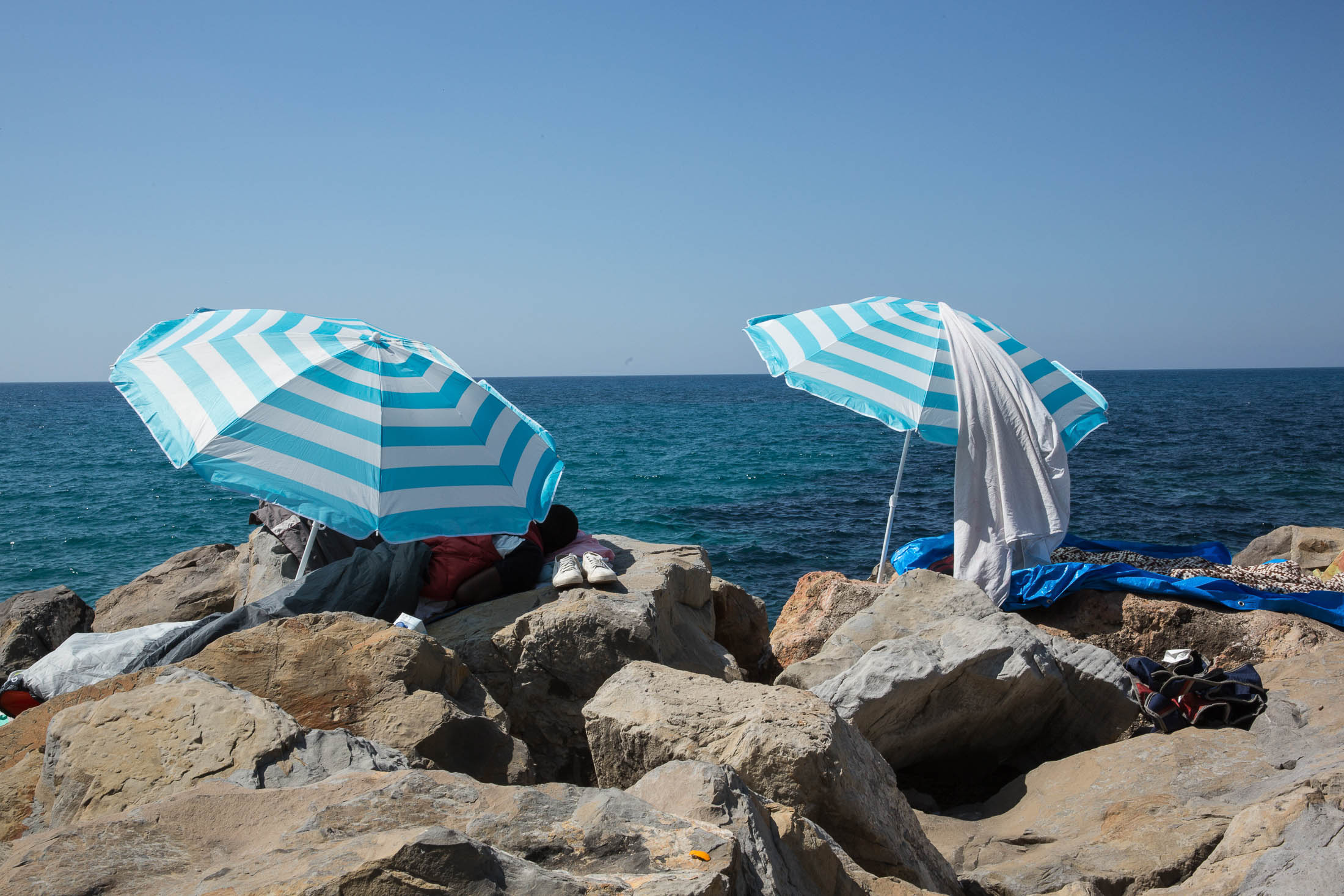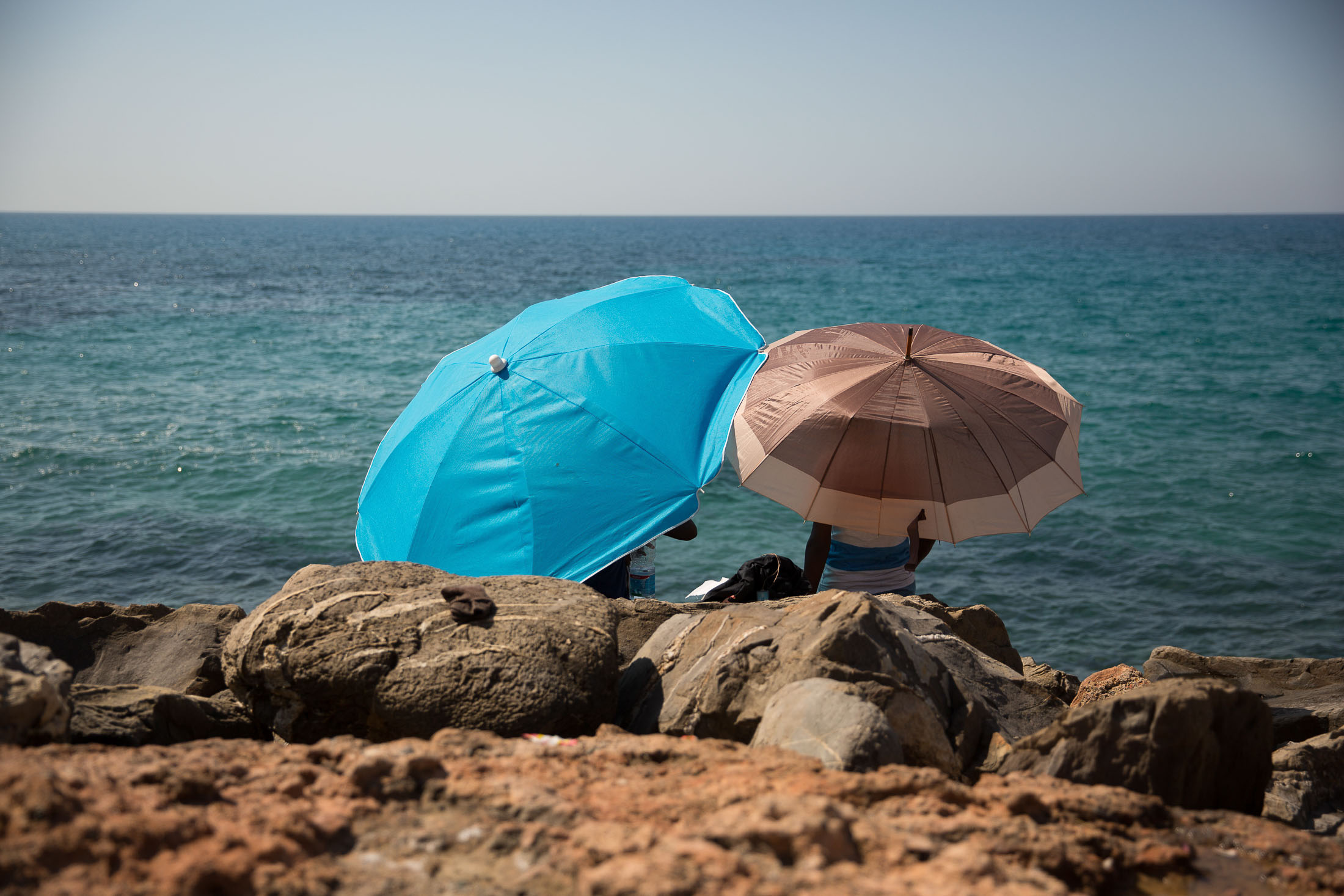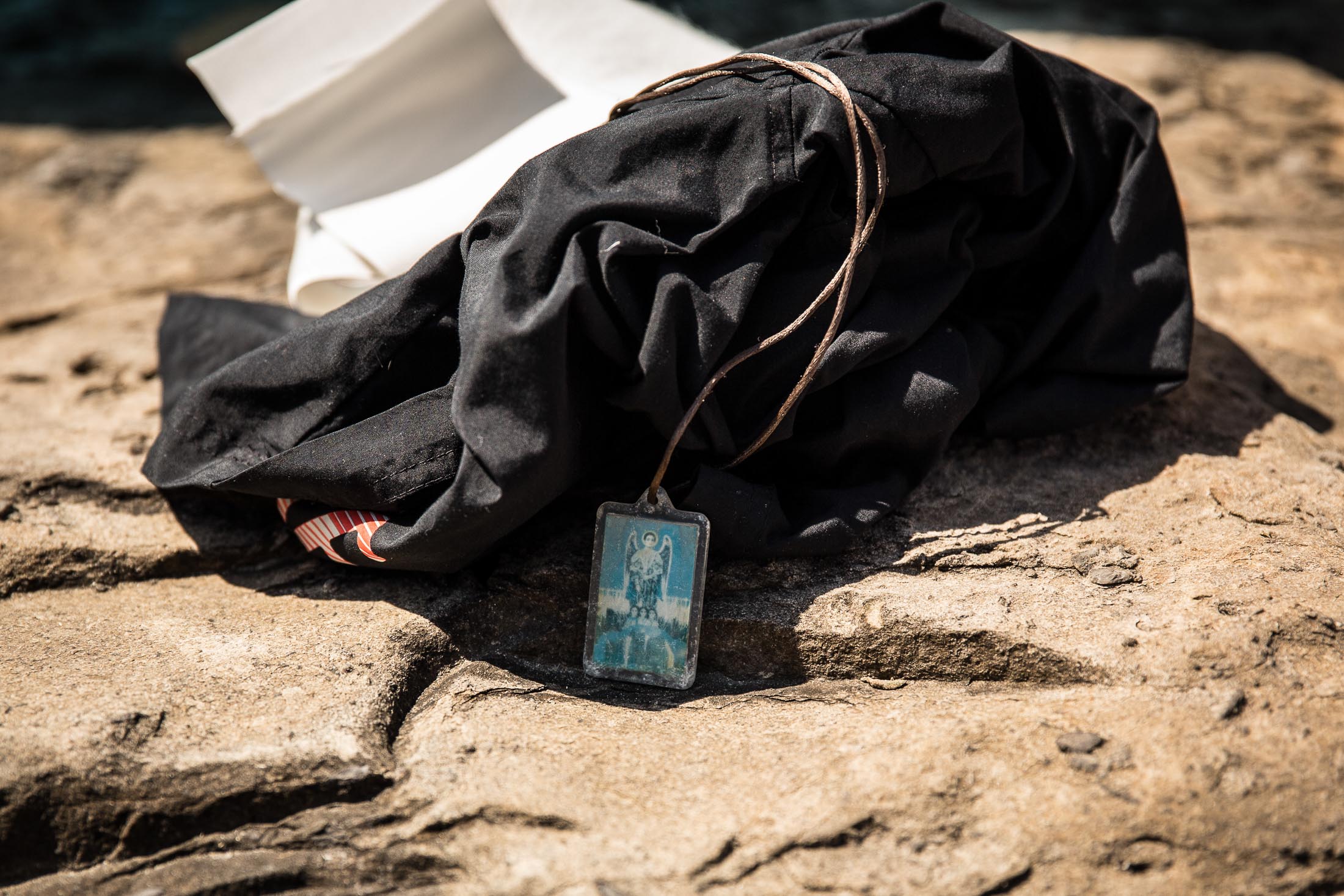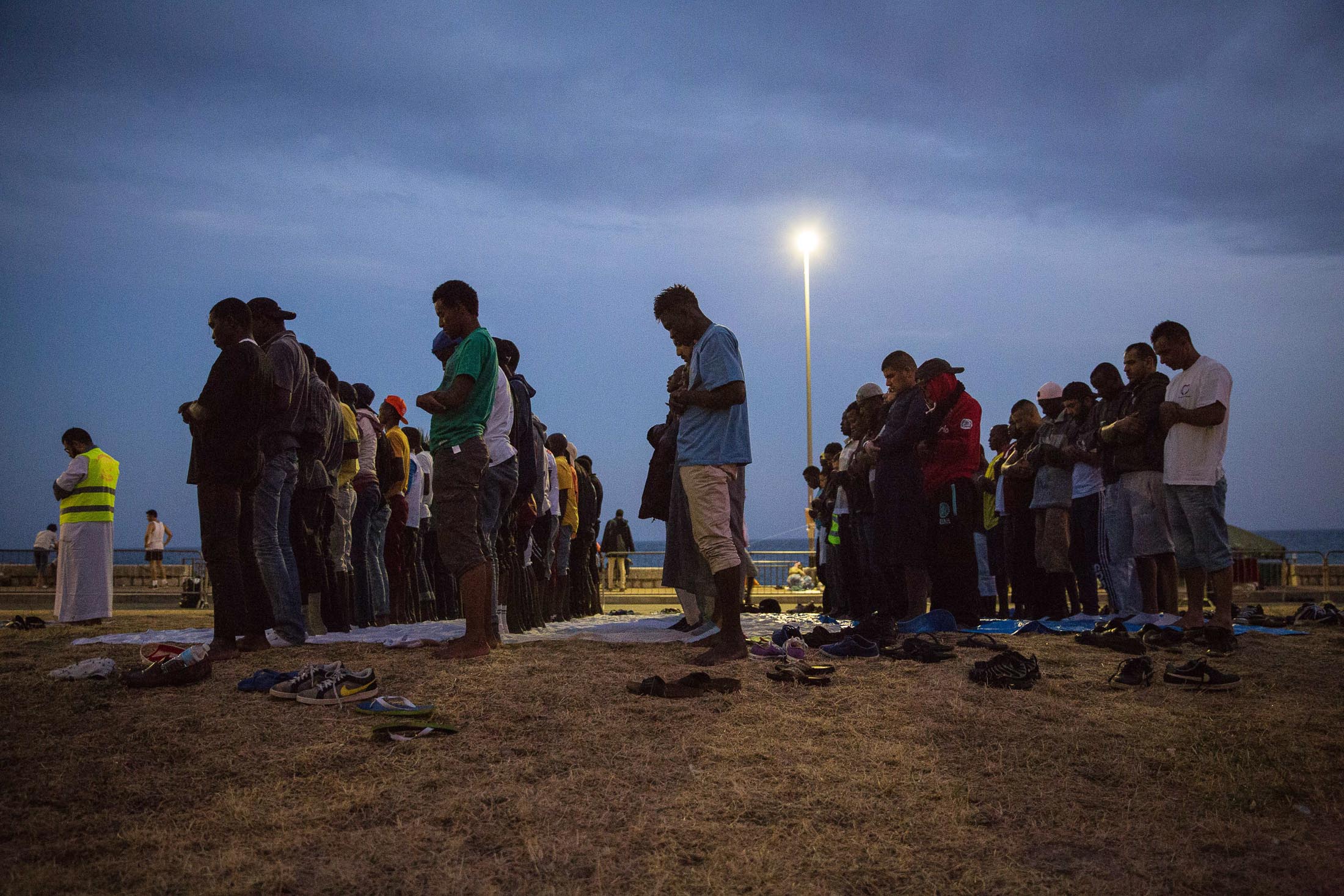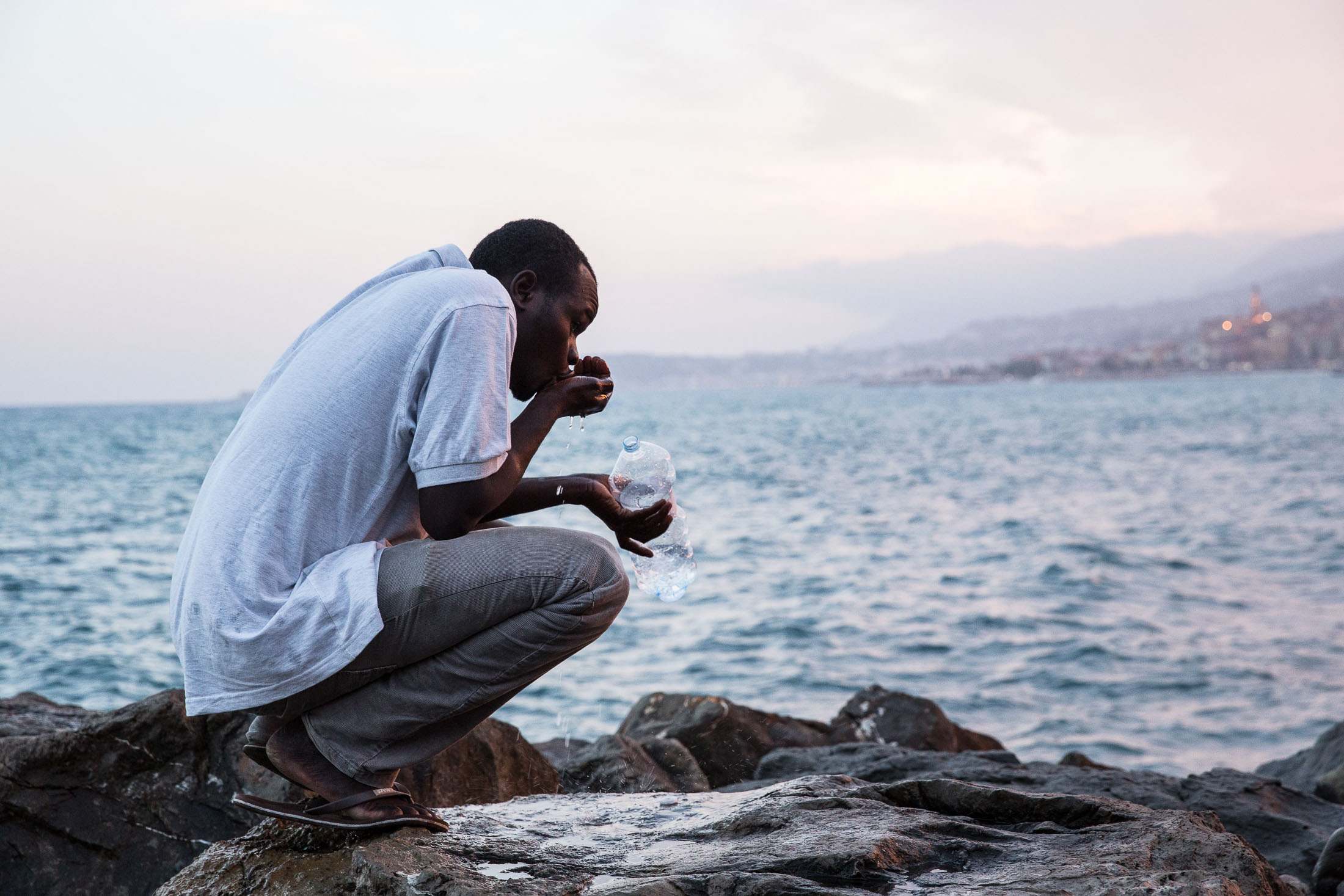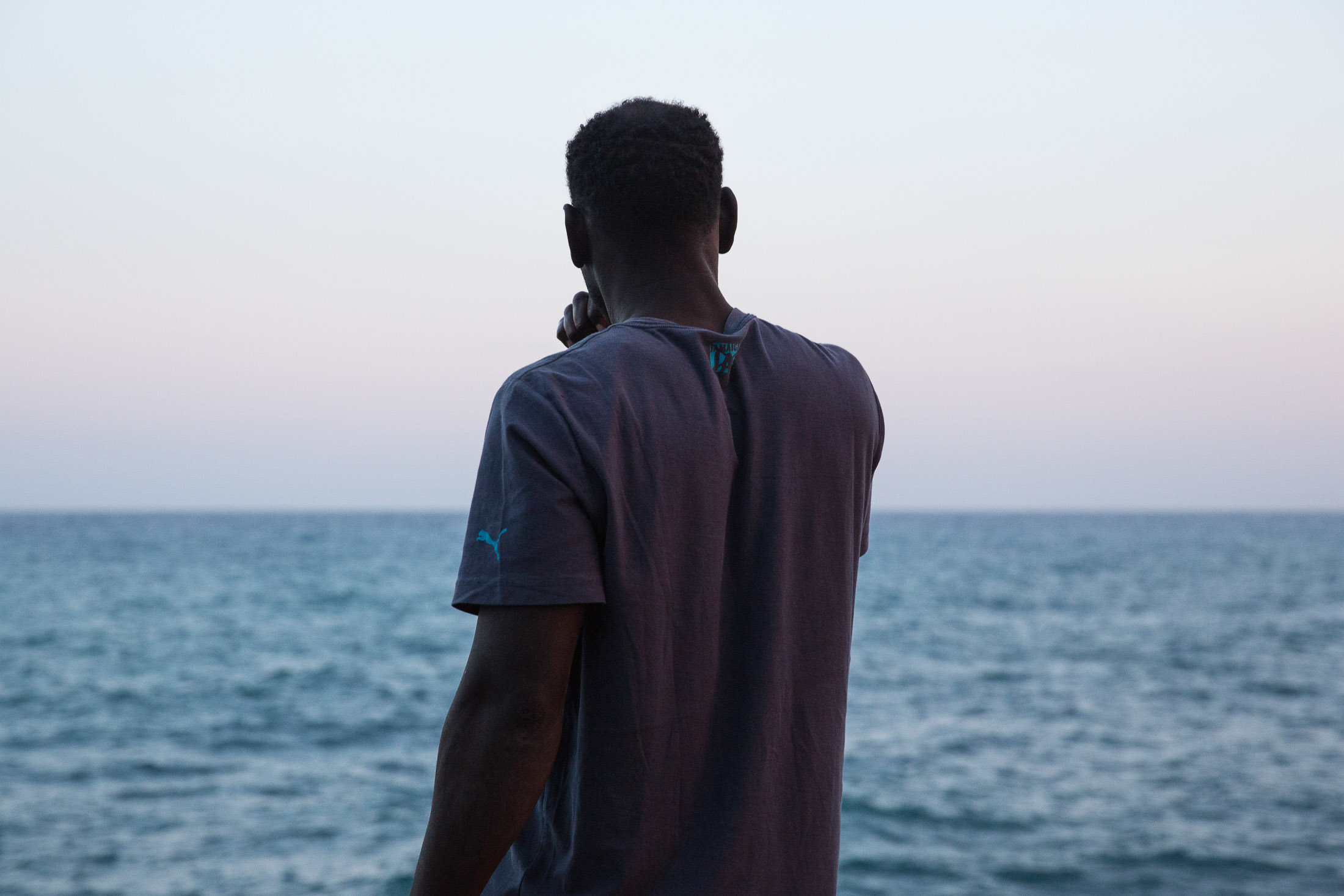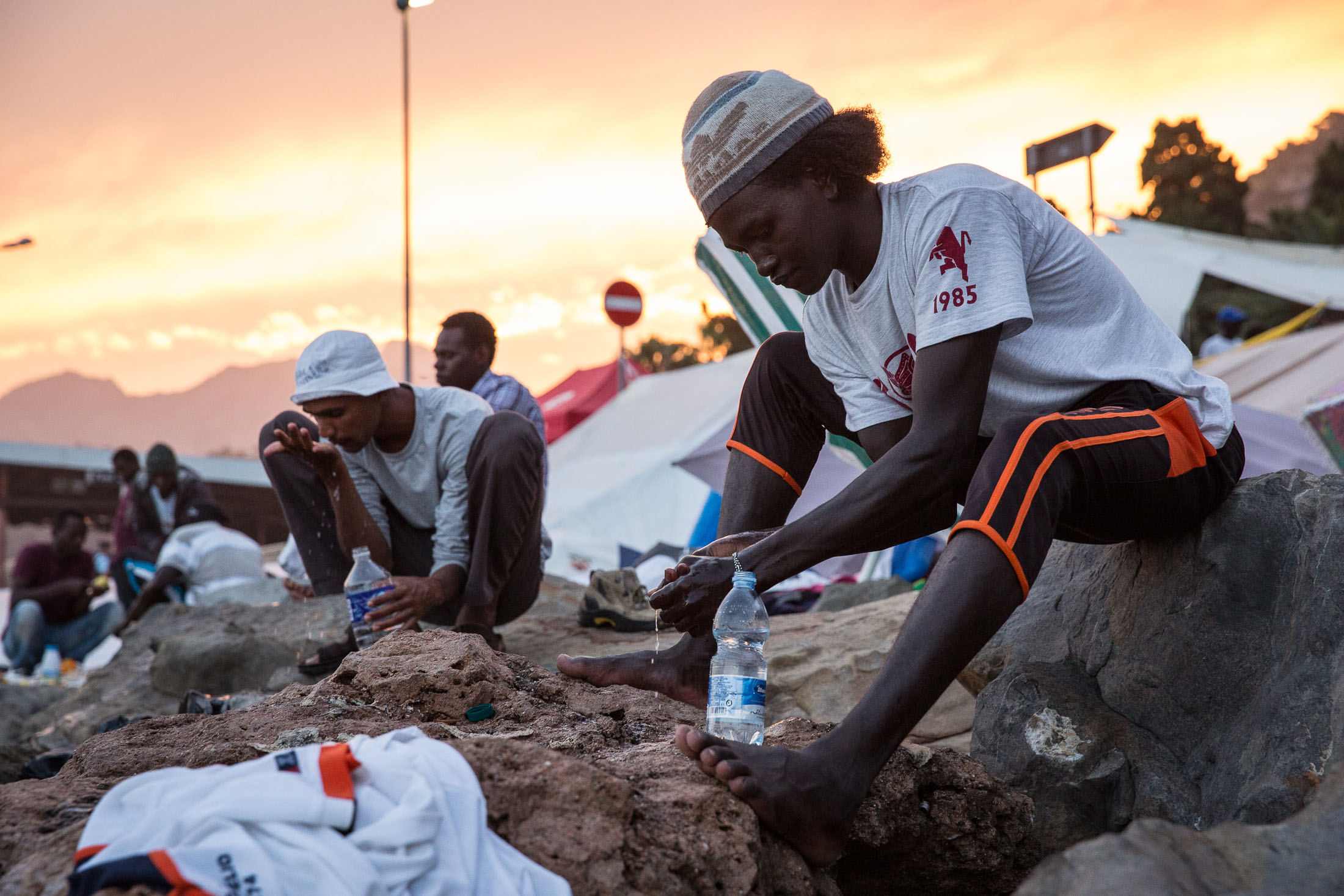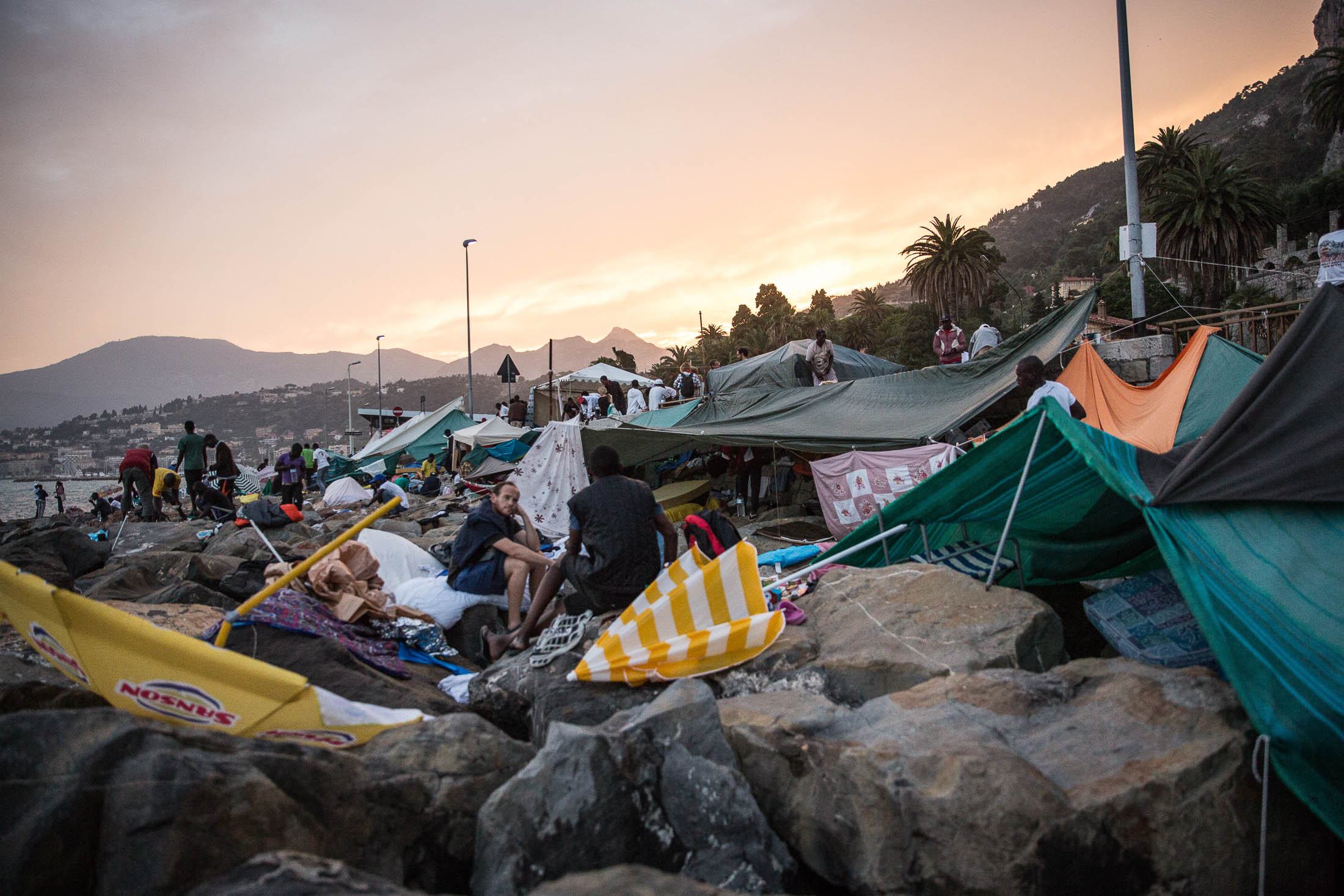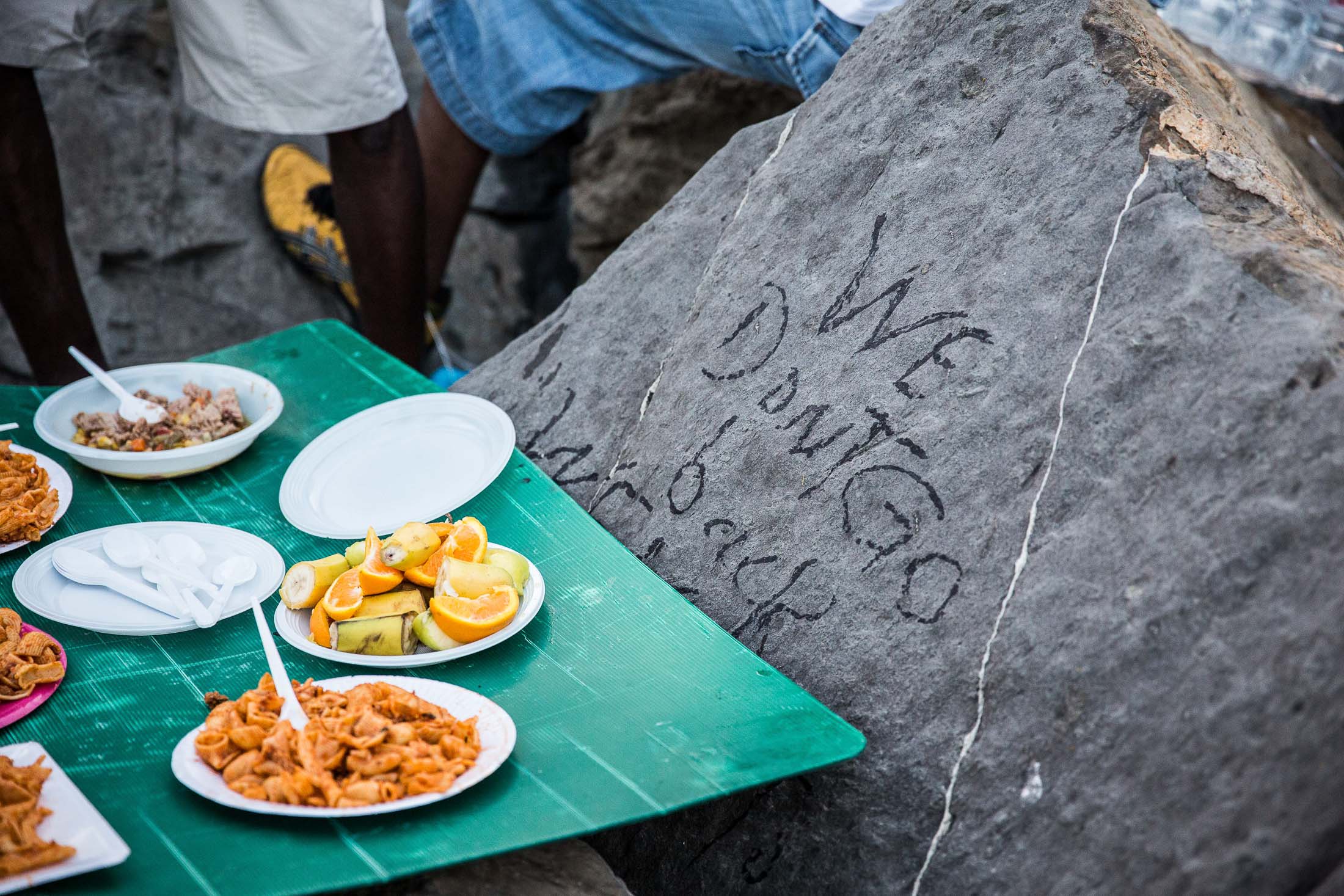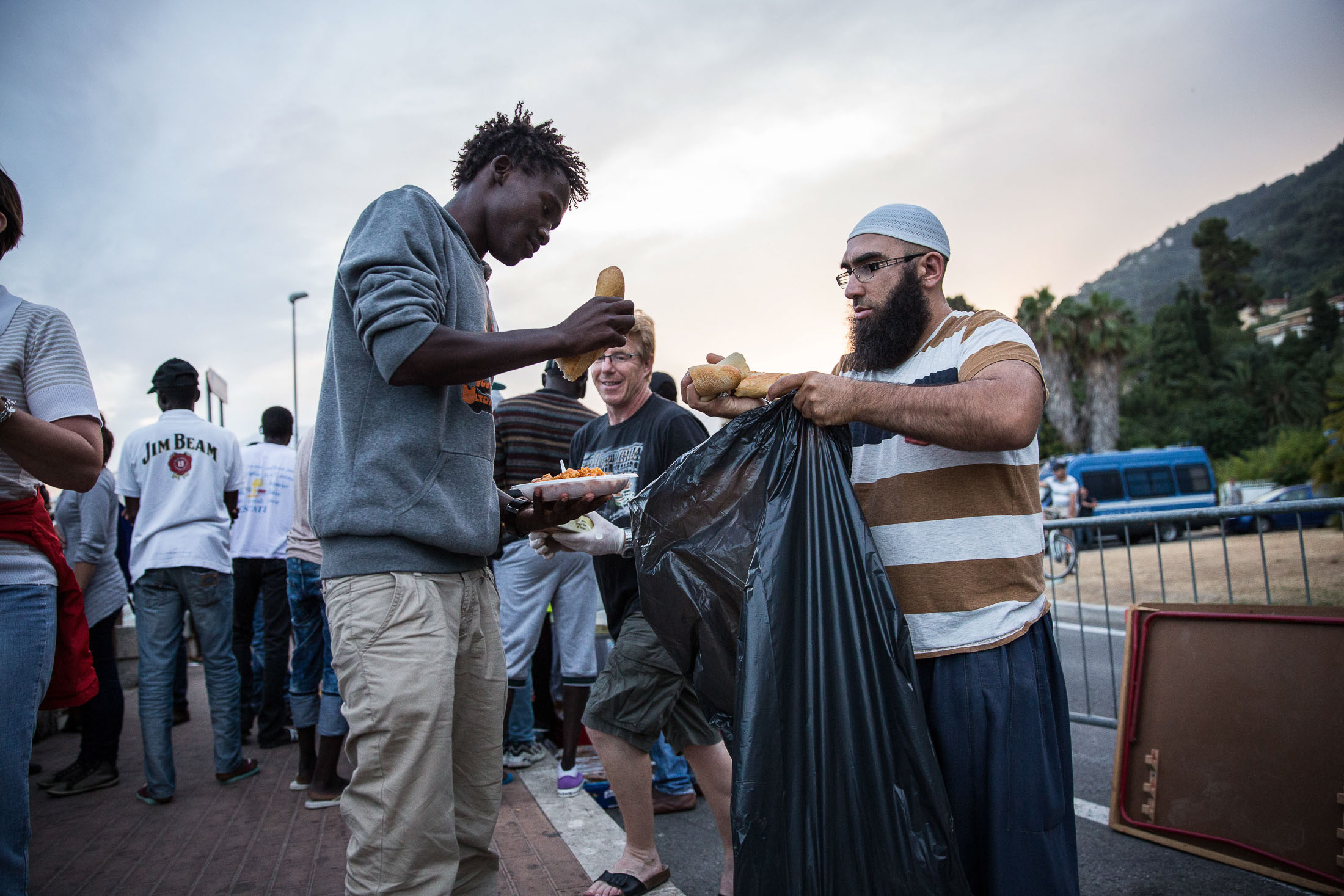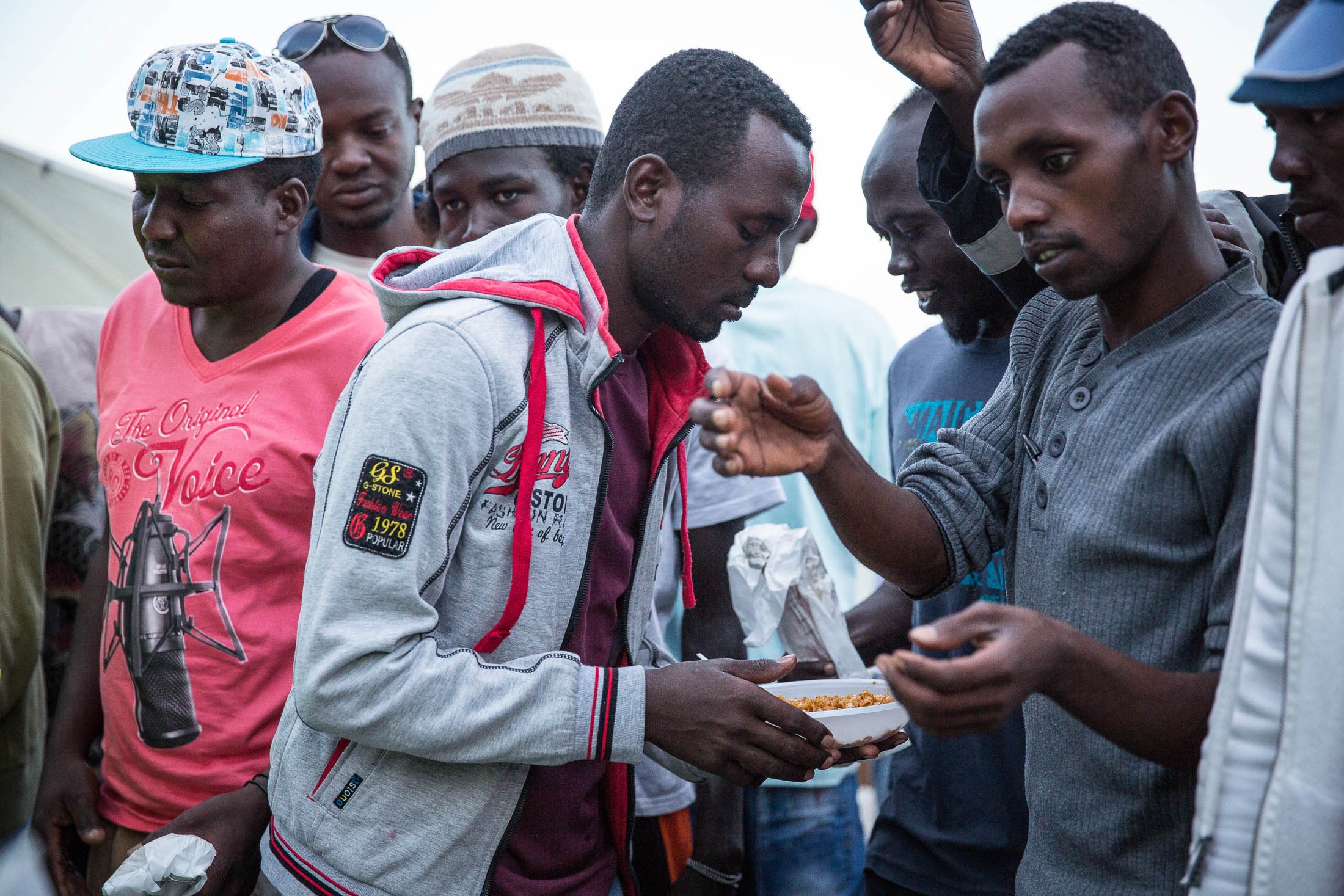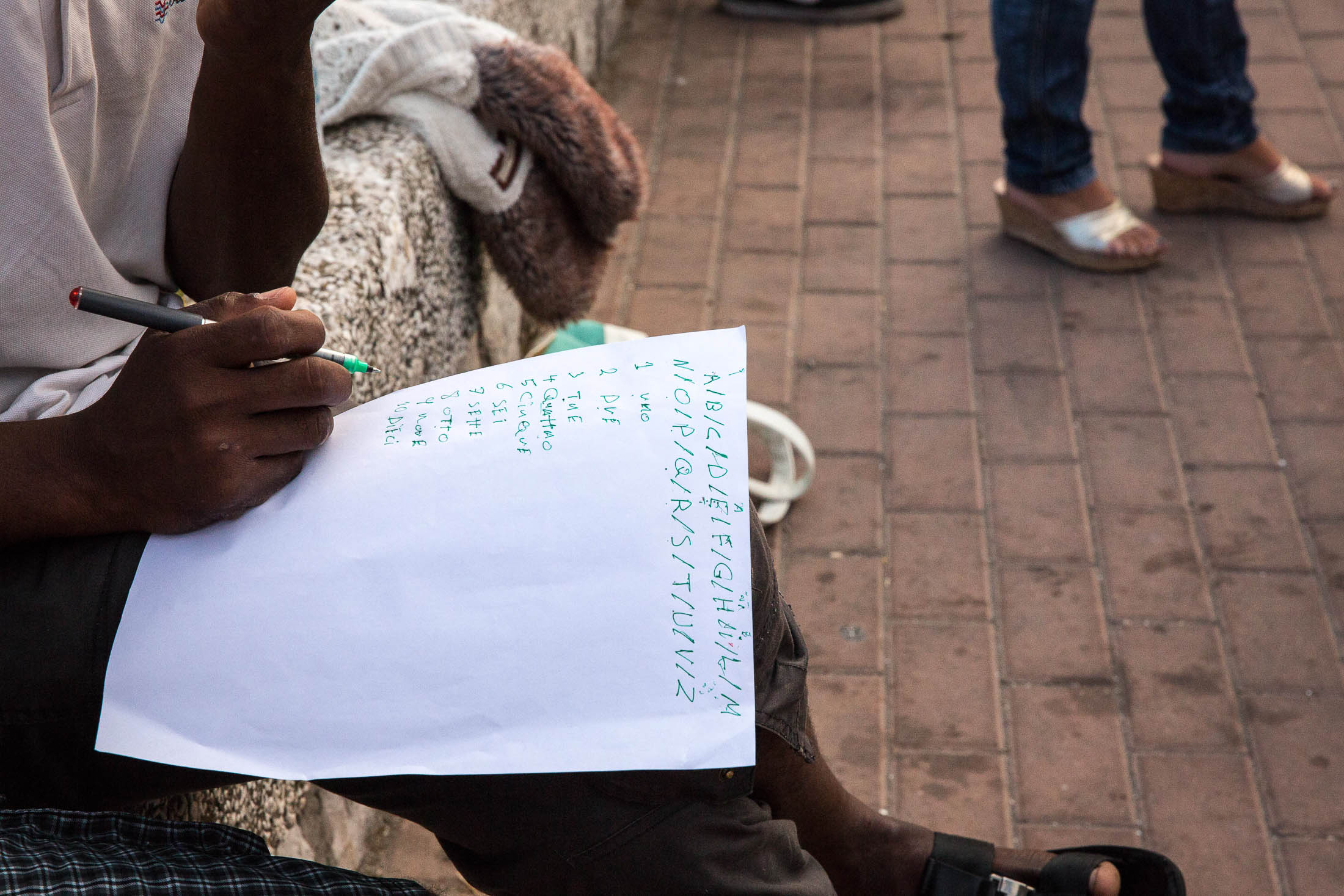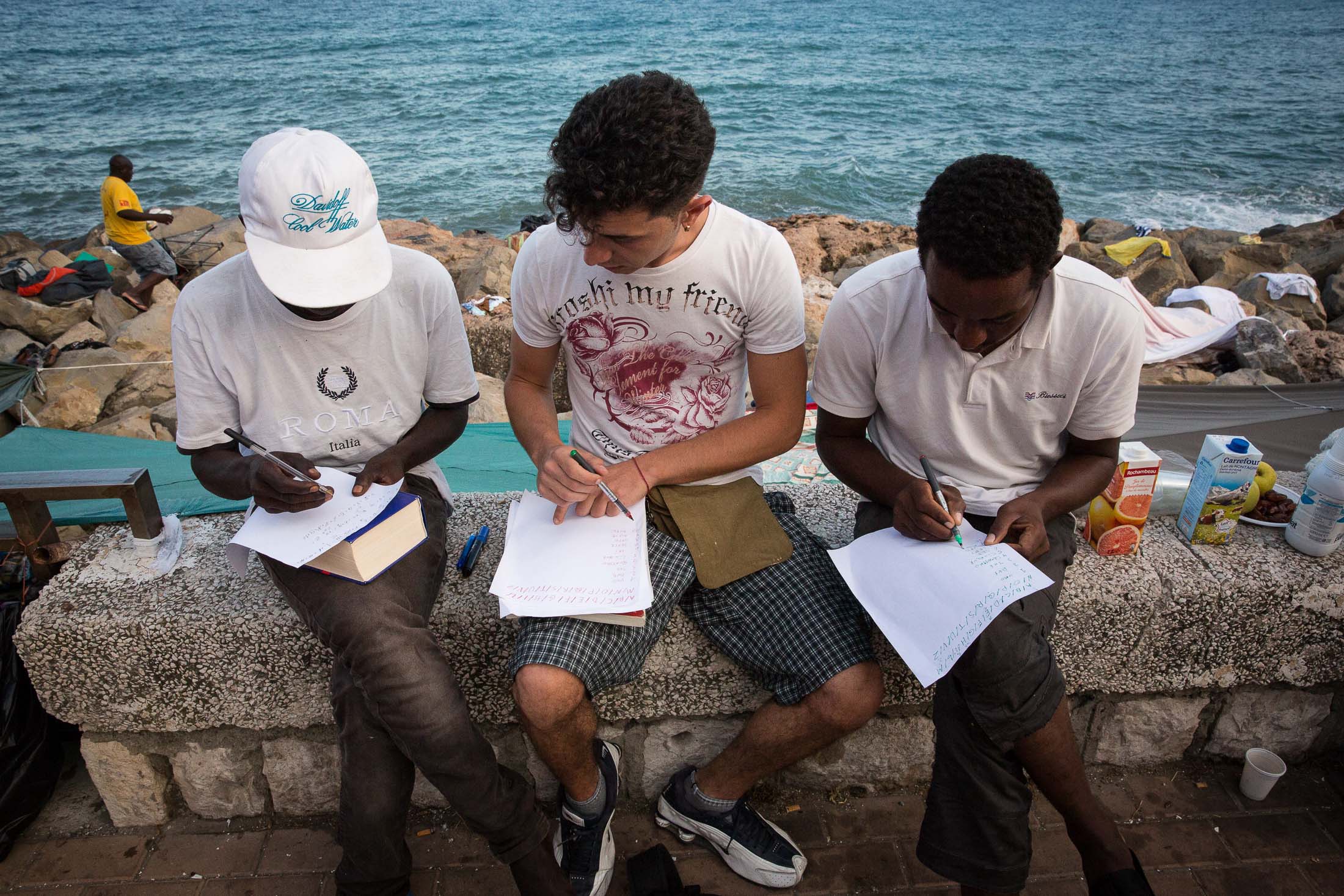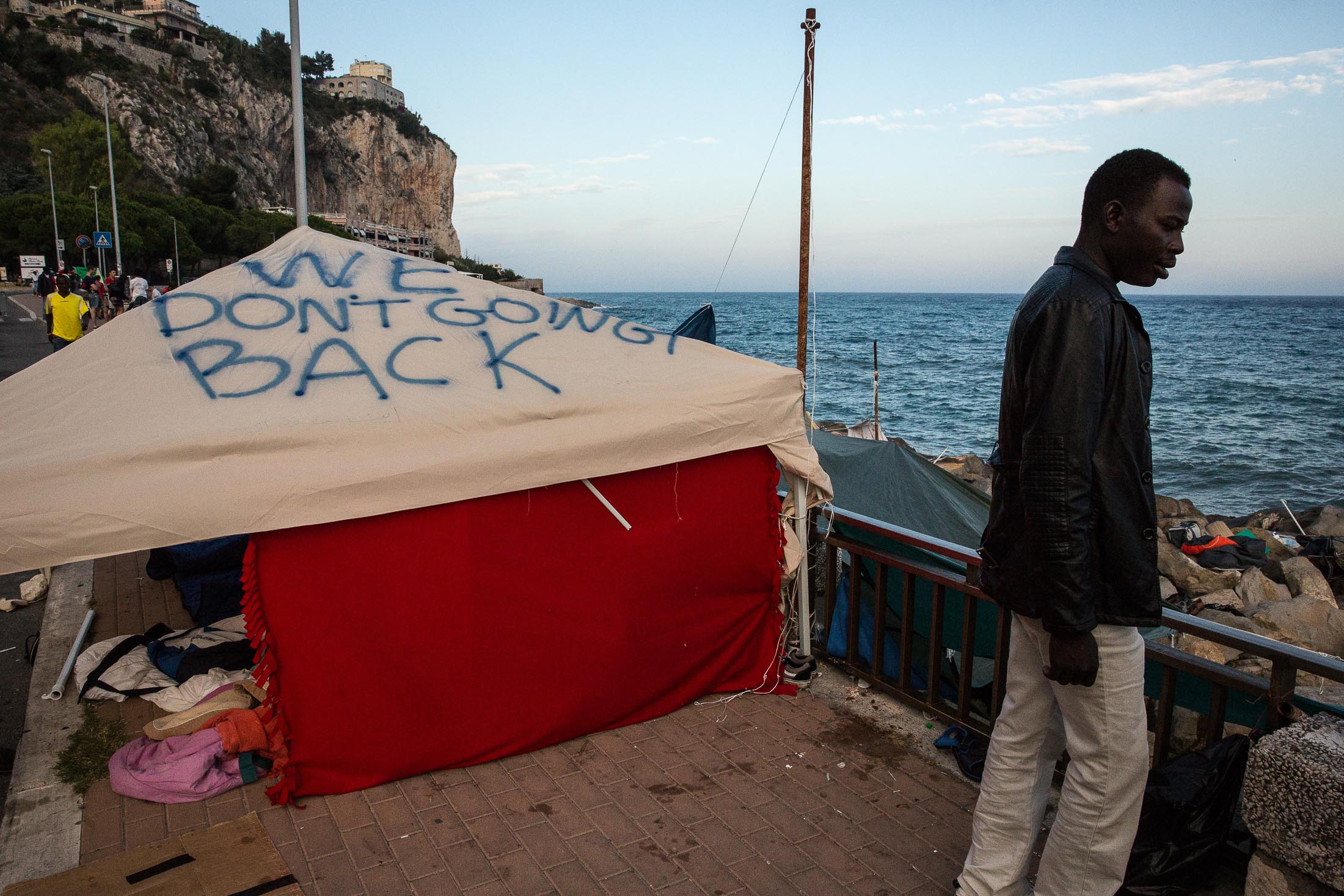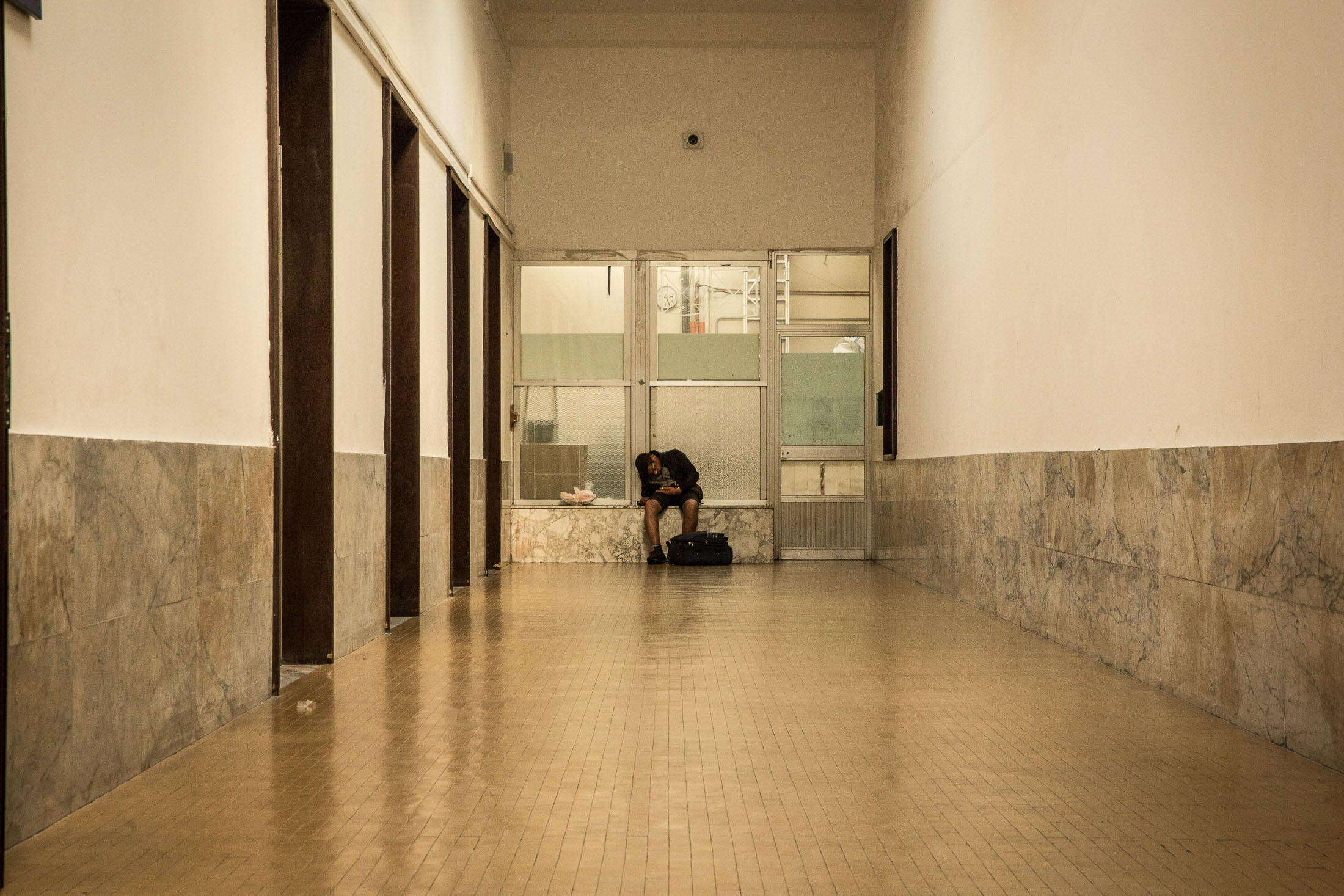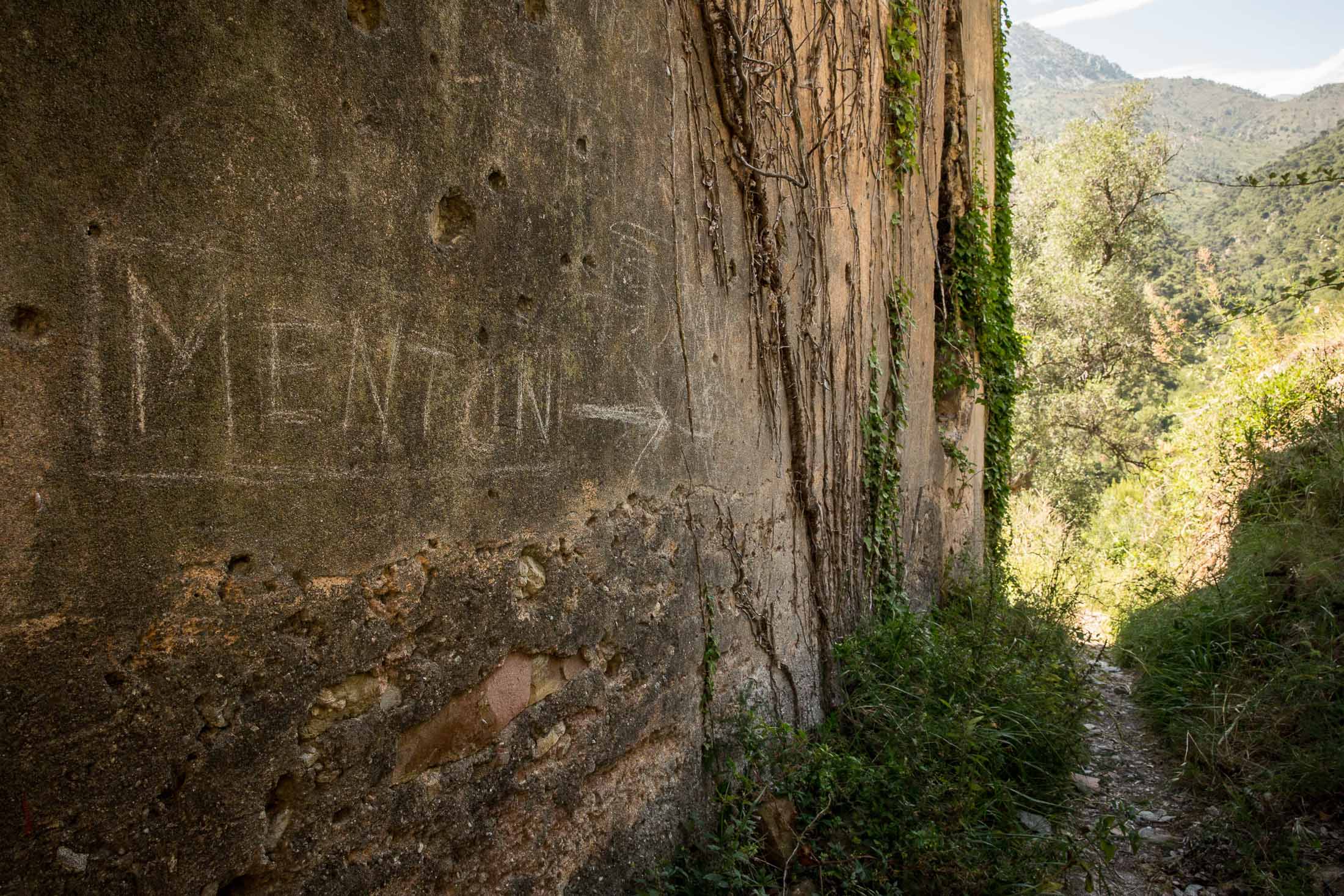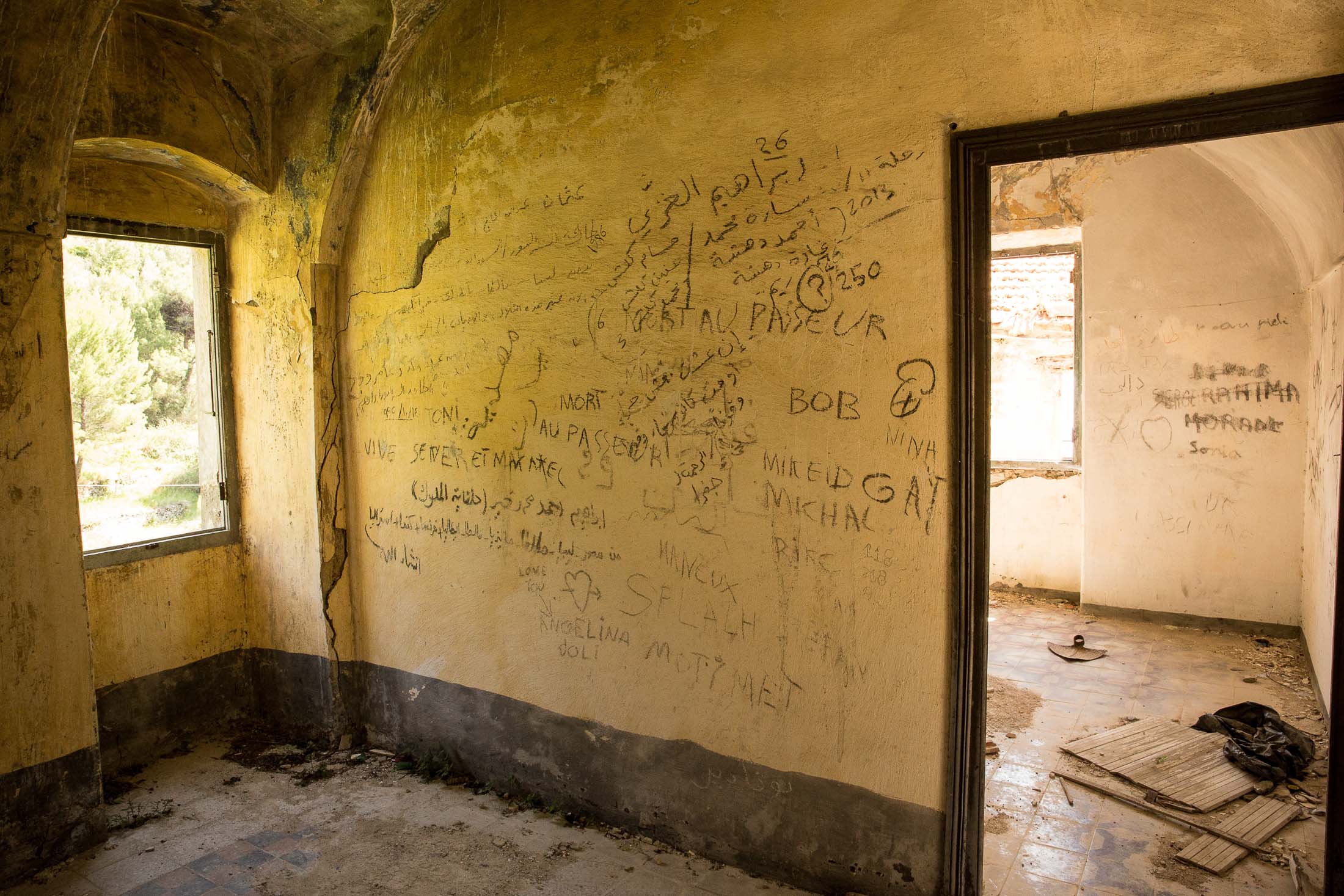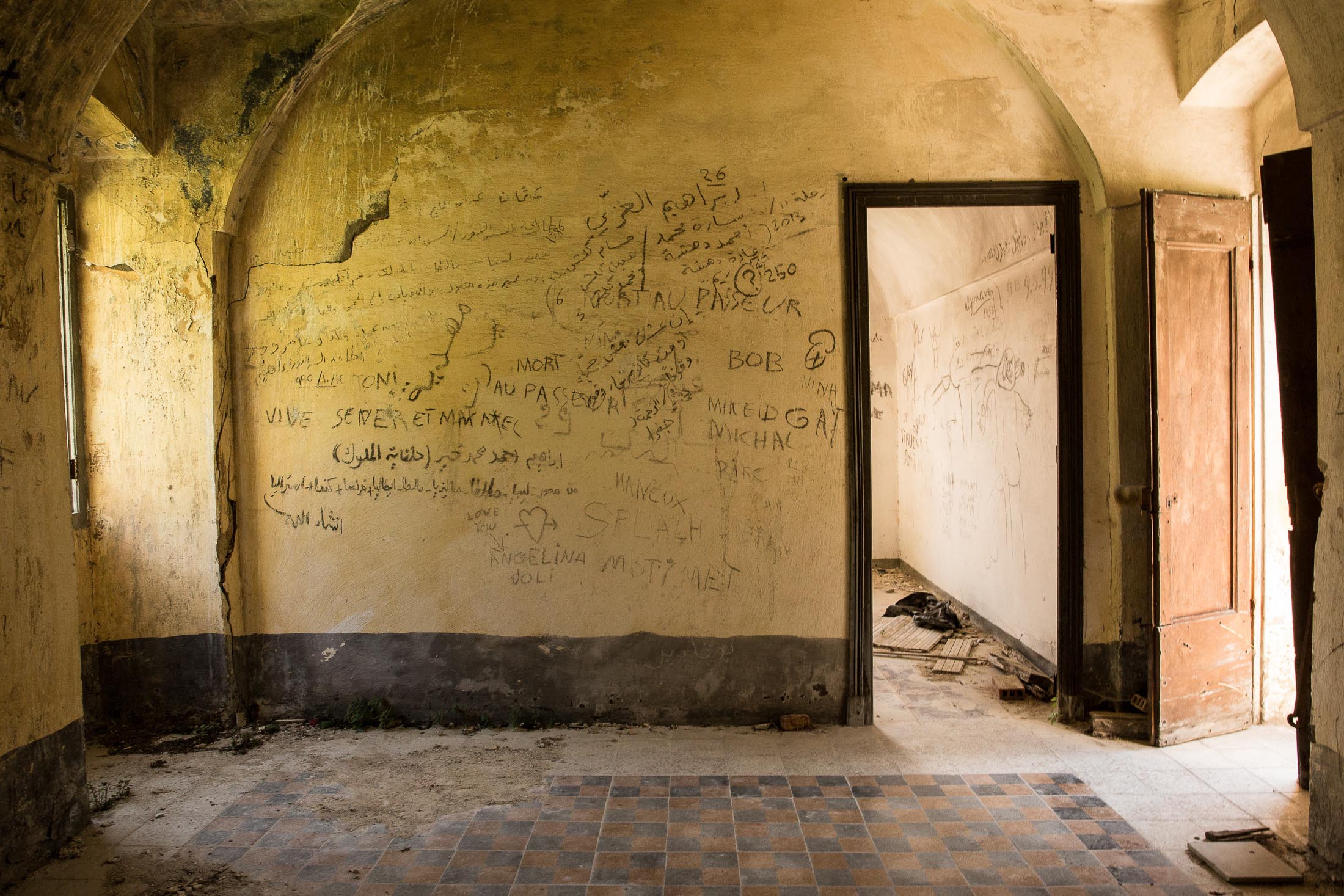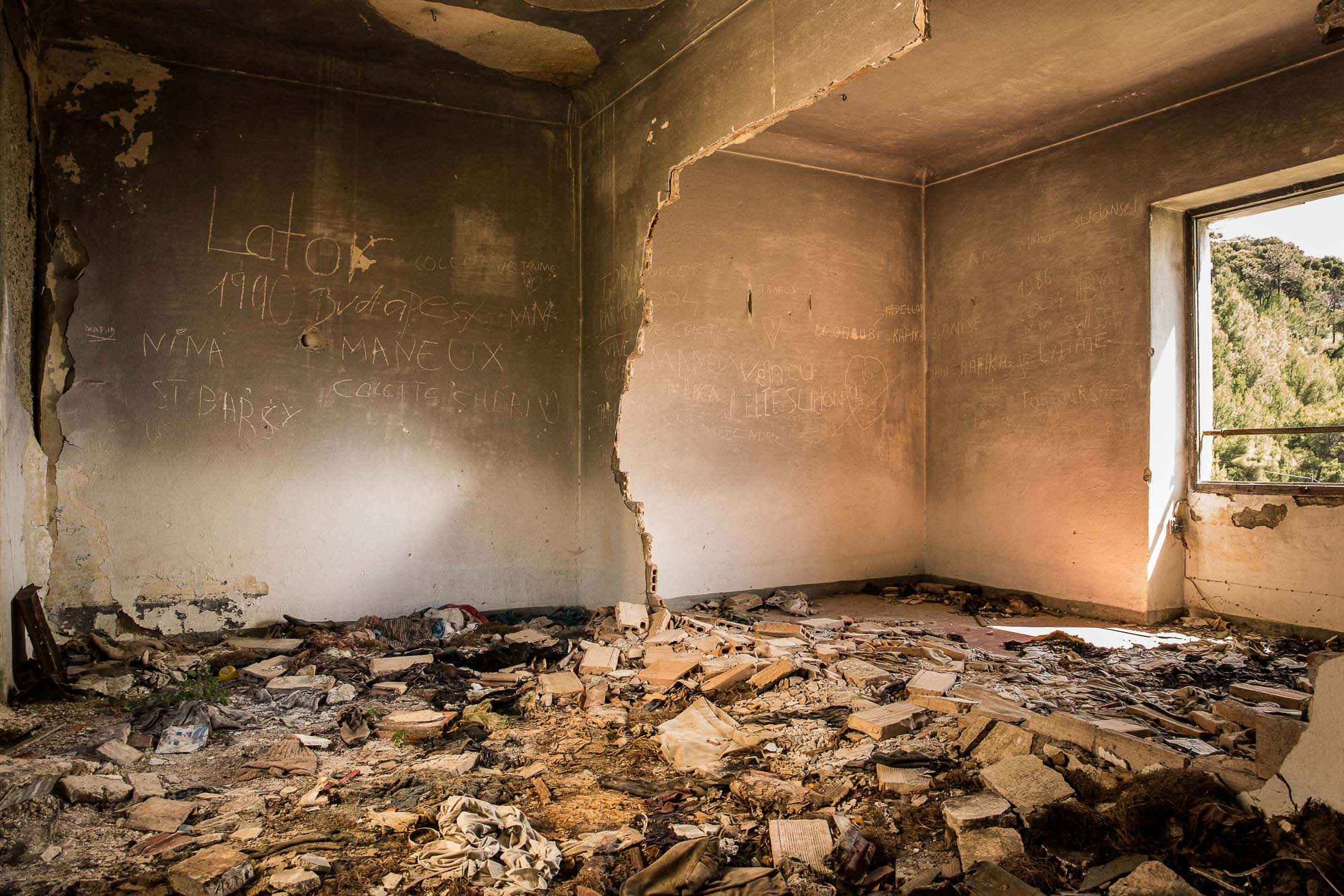LES CRABES
Ventimiglia giugno 2015. Una delle più gravi negazioni dei diritti umani che l’Italia abbia mai attuato dalla crisi dei flussi migratori degli ultimi anni.
Cinquecento esseri umani tra Eritrei, Siriani, Senegalesi e Somali si sono trovati le porte francesi di Menton, cittadina sulla costa appena dopo Ventimiglia, bloccate. In tutta risposta si sono organizzati per un presidio semi-permanente sugli scogli a pochi metri dall’ex dogana che divideva l’Italia dalla Francia prima dell’Unione Europea. Cinquecento persone tra cui ovviamente donne e bambini, costretti a vivere e dormire su pietre in riva al mare, davanti agli sguardi semi indifferenti delle famiglie intente a raggiungere la Costa Azzurra per un week end a base di sole, mare e shopping. I Francesi li chiamano “Les Crabes”, granchi. Con risposta si sente un urlo corale “WE DON’T GOING BACK”. In questo presidio si sono organizzate associazioni, centri sociali, volontari francesi e italiani con attività ricreative. I profughi cercano di imparare l’Italiano e il Francese e la sera le associazioni arabe della zona vengono per fornire pasti e chiudere la giornata in preghiera tutti insieme, in tempo di Ramadan.
Questo è il racconto dei dieci giorni passati con loro nel presidio.
Ventimiglia June 2015. One of the most serious denial of human rights that Italy has ever implemented since the crisis of migration flows in recent years.
Five hundred human beings like Eritreans, Syrians, Senegalese and Somalis found the French border closed. In response, they organized themselves for a semi-permanent garrison on the rocks a few meters from the former customs house that divided Italy from France before the European Union. Five hundred people including women and children, forced to live and sleep on the rocks by the sea, in front of the semi indifferent glances of families intent on reaching the French Riviera for a weekend of sun, sea and shopping. The French call them "Les Crabes", crabs. In response you hear a choral scream "WE DON'T GOING BACK". In this garrison there are associations, social centers, French and Italian volunteers with recreational activities. The refugees try to learn Italian and French and in the evening the Arab associations in the area come to provide meals and end the day in prayer all together, in time for Ramadan.
This is the story of the ten days spent with them in the garrison.
